Steve Smith Sr.
 From NFL warrior to compassionate humanitarian
From NFL warrior to compassionate humanitarian















On the Cover






 From NFL warrior to compassionate humanitarian
From NFL warrior to compassionate humanitarian




















Nationally recognized for our commitment to patient safety.
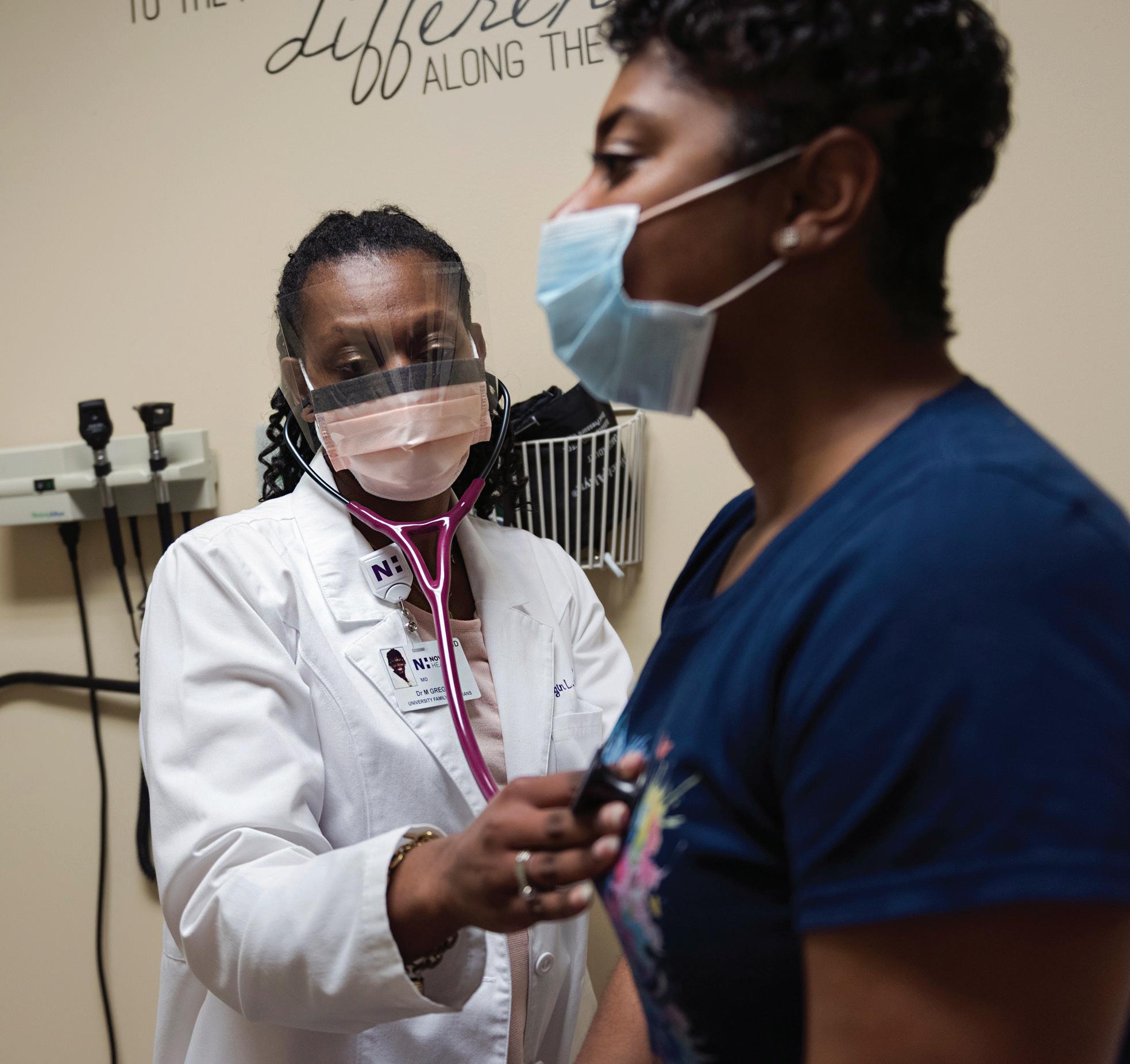
At Novant Health, we’re setting the standard by providing the safest care in the state. This is our continuing commitment to you. When you need care, have peace of mind knowing that we’ve earned more A’s than any other healthcare system in North Carolina, according to Leapfrog Hospital Safety Grade.
Expect Remarkable.
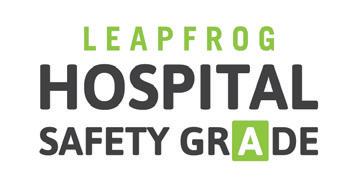
Alicia Benjamin
Sonja Whitemon
Lead Writer
Angela Lindsay
Creative Director
Larry Preslar
SPARK Publications www.SPARKpublications.com
©Watch Dog Entertainment® LLC Digital Content Distribution
Nikelle Fesperman
Public Relations
Nepherterra Estrada
Subscribe to Pride $13.25. Please subscribe online at www.pridemagazineonline.com, mail to P.O. Box 30113, Charlotte, NC 28230 or call 704-375-9553
Please send an e-mail to info@pridemagazine.net fax to 704-375-9550 or mail to Pride Magazine 8401 University Executive Park Drive, Ste. 122, Charlotte, NC 28262 www.pridemagazineonline.com

Copyright© 2023 Pride Magazine
All rights reserved. Copying or reproduction, in part or in whole, is strictly prohibited.
Pride Magazine reserves the right to deny any advertisement, listing or feature that does not meet Pride Magazine standards or that is outside the scope or mission of our magazine. Pride Magazine assumes no responsibility for information, products, services, or statements made by advertisers or editorial contributors.
Pride Magazine prints with soy ink.

Vol. 31 No. 1
January-February 2023
All rights reserved for PRIDE Communications Inc.
Find us on Facebook: Facebook.com/PrideMagazineNC


Find us on Instagram: @pridemagazinenc

Find us on LinkedIn: Pride Communications, Inc.

Did you know that Pride Magazine originated at the Charlotte Observer and debuted in 1993 as “Community Pride Magazine?”
Yep, it was originally owned by the Observer, and I was a salesperson for the magazine when the first issue was published. That was a long time ago and it’s been quite an interesting journey, to say the least. To shorten a long story, I purchased the magazine in 2001, launching my career as an entrepreneur as the CEO of my small business Pride Communications, Inc./DBA Pride Magazine.

King weekend, raising funds for worthy causes. In recent years, the event moved to a successful luncheon experience, but in 2023 with Truist as our title sponsor, it’s time to C E L E B R A T E our 30-year journey with an unprecedented “Day Ball!”
We started with two signature events, the Pride Sunset Jazz Festival and the annual Pride Awards. The latter remains and has played an integral role in the success of the magazine over the years, recognizing the outstanding contributions and accomplishments of local African Americans. The Pride Awards began as a themedblack-tie gala during Martin Luther


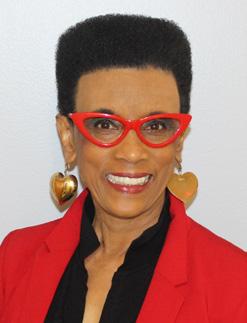
Diana
Folks, get your gowns and tuxedos ready for an innovative experience that is being planned to enlighten, engage and entertain you. Three Awards will be presented this year:
1 The Pride Inspiration Award – presented to the Arts Empowerment Project
2 The Pride Innovation Award – presented to Lowe’s Companies, Inc.
3 The Pride Technology Award – presented to an outstanding high school student
• Theme: Pride Awards 2023: A 30-year Journey of Inspiration and Innovation
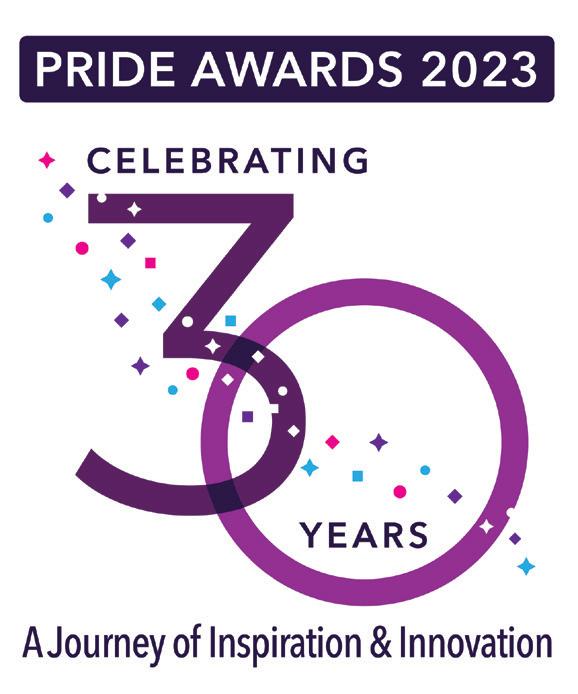
• What: A “Day Ball” Celebration (A “Day Ball” is simply a gala that begins during the day)
• Date: Saturday, Feb. 25, 2023
• Time: 3:30 p.m. – Reception 4:30 p.m. – Dinner/Program 6:30 p.m. – Entertainment 7:30 p.m. – Event Ends
• Location: The Westin Charlotte
• Attire: Black Tie
To be a part of this historic occasion and for updates, log on to www.prideawards.net or call 704-375-9553. Sponsorships, tickets and tables are still available.

 By Shavonda Bean
By Shavonda Bean
Technology and social media were essential during the pandemic. Tech was the hero that allowed me to stay connected to the community I serve during a time they needed it most. It was necessary for many of us to do our jobs, to learn, to stay connected to our friends, loved ones, communities and churches. As a result, we have inadvertently found ourselves more digitally connected than ever before.
Boundaries previously set between our work and home lives were blurred as people gained significantly more access to people’s personal lives. Our children were not excluded from this experience when suddenly home and school life merged. Ideals around appearance, body image, presentation and interpersonal relationships received close examination. We have all admired, been inspired or downright discouraged when we compare ourselves with what we see in the media. Children are no different.
“The Common Sense Census: Media Use by Tweens and Teens, 2021” report indicated overall screen use among teens and tweens increased by 17 percent from 2019 to 2021. Since the pandemic, at least 38 percent of children ages 8 to 12 have used social media and almost one in five of them say they use it every day. Snapchat, Instagram, Tik Tok, Discord and YouTube are where they spend most of their time. The research also found that even though girls describe enjoying social media more than boys, boys are spending about the same amount of time on social media as girls.
Untangling the true impact of increased media use on emotional well-being and selfimage is not easy. Many adolescents describe virtual connections as positive. It helps them feel connected, deepens their relationships with friends, and can be a valuable source of information and connection to world issues. In my practice, more teenage boys describe how social media influences their opinions about their bodies and personal goals. They follow athletes, celebrities, peers, or influencers who have the physique
or exercise routine or goals they admire. This peek inside the lives of others offers an example of what is attainable and can help motivate them to improve. They often feel up for the challenge. Girls are also motivated in many ways by what they see and they can find a sense of community in virtual connections.
We are continuing to learn about the influence of social media on life satisfaction and body acceptance in teenagers. There are many reasons to stay vigilant. If confidence or self-esteem is low, social media influences can breed negativity and further compromise the sense of self. Notice any warning signs that your child might be using the information they glean to set unrealistic expectations or timelines for accomplishing personal goals. Pay attention to dissatisfaction with appearance, muscles, weight and/or excessive exercising or dieting. The drama and comments on their social media posts can also be a source of contention. Keep this in mind if you start to notice disruptions in your child’s friendships and relationships followed by withdrawal or social isolation. Any of these could indicate the need for more guidance or parental

support. Never hesitate to follow up with the doctor or a mental health professional if concerns are significant.
So while there are many benefits to technology and access to social media, we cannot ignore the risks and potential impacts on our children, their mental health and life satisfaction. Begin with keeping lines of communication open and checking in with your children about how they use social media, in addition to how they are responding to it. In the meantime, we will continue to learn to embrace the good that comes along with these advances and the way our youth are taking advantage of the power within it. P
Shavonda Bean is a licensed psychological associate and owner of Essential Assessments & Behavioral Health. Visit Essentialhealthnc.com for more information.

 By Delaina Dixon
By Delaina Dixon
With a reputation as one the finest international ambassadors of American culture, Alvin Ailey American Dance Theater will embark on a 22-city tour, returning to the Belk Theater at Blumenthal Performing Arts Center for two nights only, February 21-22, 2023. The esteemed Company will bring a welcomed mix of contemporary world premieres by today’s brightest choreographers, along with Company premieres from respected dance creators throughout the decades.
Deemed “America’s most popular dance company” by The New Yorker, Alvin Ailey American Dance Theater has geared up for another exhilarating season of classic Ailey works. For more than 60 years, the Ailey company has brought its passionate spirit and precise technique to the stage, and with this year’s repertory, Artistic Director Robert Battle has cultivated a program that underlines the power of love in all its forms. “I believe we should celebrate love at any chance we get,” he shares.
The inspiring finale of all programs will be Alvin Ailey’s must-see American masterpiece Revelations. Since its debut in 1960, Revelations has been seen by more people around the world than any other modern dance work. Acclaimed for sending hearts soaring and lifting audiences to their feet, its powerful storytelling and soul-stirring music evoke timeless themes of determination, hope, and transcendence. Springing from Ailey’s
childhood memories of growing up in the south and attending services at Mount Olive Baptist Church in Texas, Revelations pays homage to the rich cultural heritage of the African American and explores the emotional spectrum of the human condition.
It was March 30, 1958, when Alvin Ailey fearlessly led a small group of African American dancers to the stage at New York City’s 92nd Street Y. Billed as a one-night engagement, the riveting performance launched a new voice and era in the world of dance. Envisioning a company that would enrich American dance heritage and preserve the uniqueness of the African American experience, Mr. Ailey became a trailblazer of modern movement. Over the next 30 years, his efforts grew to include education, community outreach, and cultural diplomacy.
He established Alvin Ailey American Dance Center — now The Ailey School — in 1969, and Alvin Ailey Repertory Ensemble — now Ailey II — in 1974. More than 25 million people have seen Ailey perform in 48 states, 71 countries, and across six continents — millions more through TV, film, and online. More than 235 works by over 90 choreographers have been a part of the Ailey repertory, and in 2008, the U.S. Congress designated the Company as “a vital American cultural ambassador to the world.”
Mr. Ailey named Judith Jamison as his successor in 1989, and she brought the
Company to unprecedented success during her 21-year tenure. Ms. Jamison, in turn, personally selected Robert Battle to succeed her in 2011. He has consistently “injected the company with new life,” as noted by The New York Times, and continues to bring innovation to its cause.
In 2014, Mr. Battle accepted the Presidential Medal of Freedom, the nation’s highest civilian honor, on behalf of the late Alvin Ailey. Most recently, the beloved choreographer is the subject of the acclaimed documentary Ailey, currently streaming on Hulu.

Alvin Ailey American Dance Theater continues in its mission to uphold Mr. Ailey’s core value: that dance should be given back to the people. Along with the opportunity to see the Ailey company and Ailey II on stage, individuals can take classes online with Ailey Extension and enjoy the experience of movement with the Ailey community.
Tickets are on sale now by visiting BlumenthalArts.org or calling 704-372-1000. This is one show you don’t want to miss.
HopeWay provides extraordinary mental health treatment for adults. Residential & day programs available.
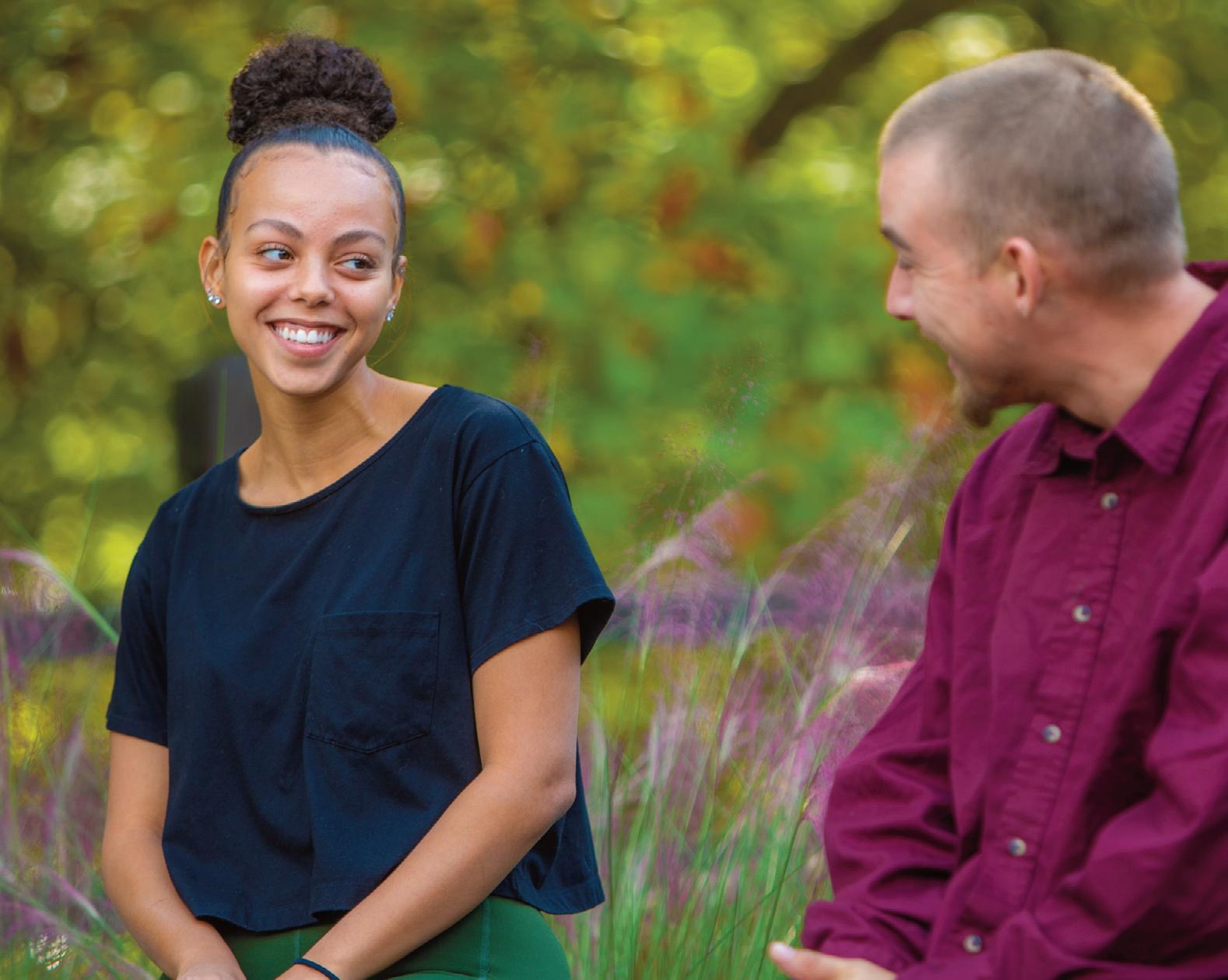
HopeWay Psychiatry & Associates offers outpatient psychiatric services for children, adolescents and adults.
Community Link, the non-profit dedicated to helping individuals and families to obtain and sustain safe, decent and affordable housing in Charlotte and 21 NC counties, thanks Floyd R. Davis, Jr. for his tireless work on behalf of people in need in the Carolinas. His contributions have been immeasurable. But we’re also proud to announce our new president and CEO: Tameka Gunn, as we work to address the affordable housing crisis in our community.
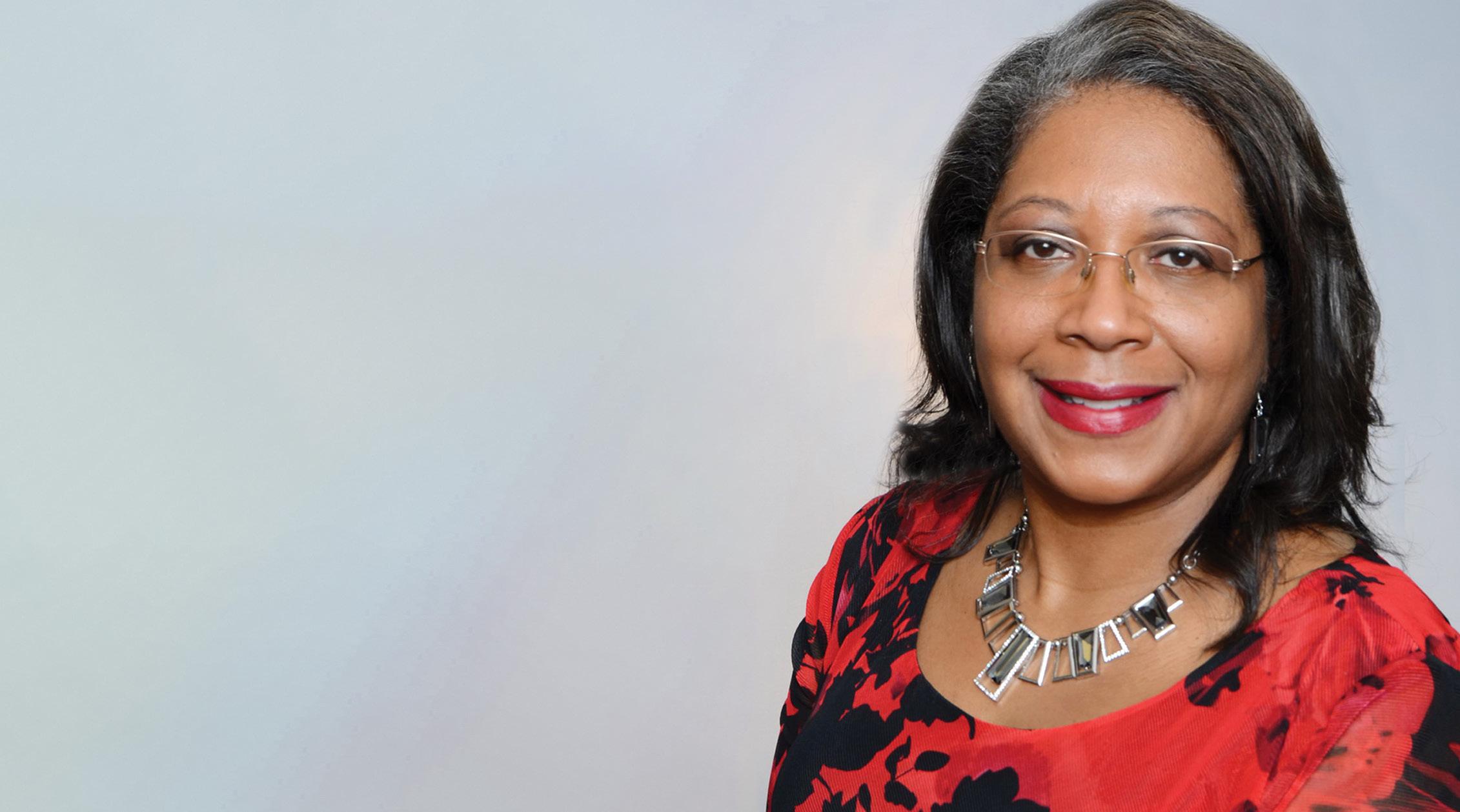
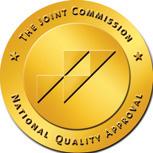
Author, playwright, producer and director, Rory D. Sheriff was recently named Best Director and Theatre Person of the Year at the Metrolina Theatre Awards. His production company, Brand New Sheriff (BNS) Productions, also won eight awards for “Ma Rainey’s Black Bottom” including best set design, best costume designer, best supporting male, best supporting female and best production.
Sheriff’s journey began with an ear for fine literature and a love for bringing people together. Penning and performing works of poetry and spoken word, he eventually donned the title of an author with the release of his first novel, “Get’n Serious: My Addiction,” and the screenplay-turned-stage play, “Be a Lion.”
Nine seasons and many awards later, BNS Productions has become the premiere African American theatre company in the greater Charlotte area. Their purpose is to educate and represent Black excellence and raise awareness of the social and cultural issues that make up our experience.
Congratulations to Danielle Belton, principal of Paw Creek Elementary School, for being named the 2022-2023 CharlotteMecklenburg Schools Principal of the Year.
Belton began her career in education 18 years ago as an English teacher at Garinger High School and is now in her ninth year as a principal at Paw Creek.
“Being the principal of Paw Creek Elementary School is such an awarding experience. It brings me so much joy and fulfillment to serve the hardest working staff and the most loving, kind, and smartest students around. I am truly blessed,” Belton said.
Belton earned her master’s degree in English from the University of North Carolina at Charlotte and graduated summa cum laude with a bachelor’s degree in English from Johnson C. Smith University. She is also a member of the Alpha Lambda Omega (ALO) Chapter of Alpha Kappa Alpha Sorority where she serves on various education committees and the ALO Board of Directors.
The National Coalition of 100 Black Women, Inc. – Queen City Metropolitan Chapter (NCBW-QCMC) elected Candice Johnson as its new president. Johnson has been a member since 2014 and has served in many roles both locally and nationally.

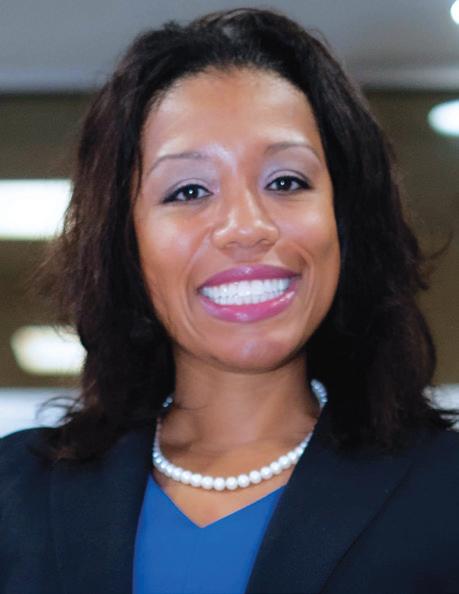
Johnson is a licensed esthetician, mentor, educator, co-founder of The Charlotte Esthetics Network Group and full-time entrepreneur with decades of professional experience. She studied business and accounting in her hometown at The State University of New York at Buffalo before relocating to Charlotte to continue her career in banking. After discovering her love for esthetics, she decided to pivot into the beauty industry and established CJ Wax Studio, a full-body waxing and skin care business in 2011.
“I am excited about being the president of the NCBWQCMC,” said Johnson. “The women I have the pleasure of working with within this organization all have different backgrounds and are multi-faceted with one mission – to be change agents and advocates for Black women and girls.”
Charlotte broadcaster and documentary filmmaker Steve Crump was selected by North Carolina Humanities to receive the 2022 John Tyler Caldwell Award for the Humanities dedicated to honoring individuals who have strengthened the educational, cultural and civic life of North Carolinians.
“It is extraordinarily humbling to realize that the community values the work we do and, in many ways, it provides affirmation and inspiration to continue moving forward,” said Crump.
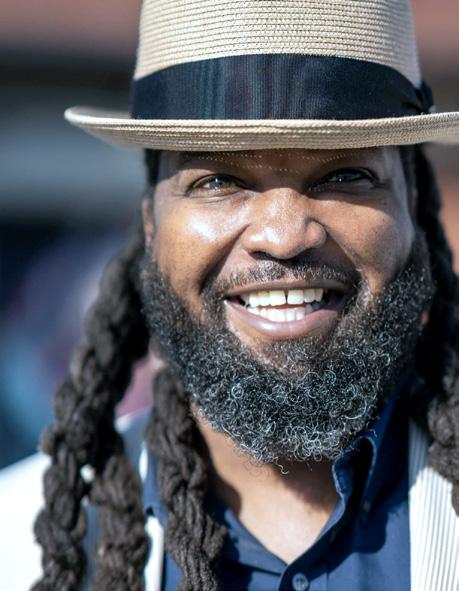
Crump has been a reporter at WBTV for nearly four decades. Many of his documentaries have been showcased by the Smithsonian and recognized by the Library of Congress and the Museum of Broadcast Communications. His productions are viewed as vital to the Carolinas’ historical record and are even held as permanent collections at the University of North Carolina at Charlotte (UNCC) and the University of South Carolina.
A native of Louisville, Kentucky, Crump grew up blocks away from the industrial Smoketown district near the Louisville Slugger factory and the gym where Muhammad Ali learned to box. He earned his bachelor’s degree in communications from Eastern Kentucky University and moved to Charlotte in the 1980s.
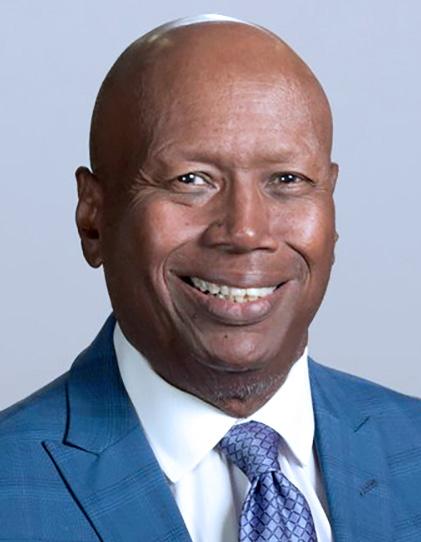
Thanks to everyone who voted for Aldersgate for the Best of Charlotte awards. This is the fifth year in a row that Aldersgate, a non-profit Life Plan Community, located in East Charlotte, has taken home top awards in several categories. While we take pride in our achievement as a community partner and these awards, our residents and community are the real winners. We work hard every day to make their lives better.
Located on hundreds of acres, Aldersgate is a 62+, entrance-fee, non-profit community that offers a variety of living options and amenities, including six dining venues, an indoor pool, salon and spa, wood shop, dog park, gardening, wooded trails and a picturesque lake. Plus, we offer a top-rated, full continuum of care.

3800 Shamrock Drive • Charlotte, NC 28215
Please visit AldersgateCharlotte.org or call (704) 318-20235 to find out more.

 A l der s g a te Wins Best o f Char l o tt e in F i ve C a t egori es :
Of all the colors of the seasons,
A l der s g a te Wins Best o f Char l o tt e in F i ve C a t egori es :
Of all the colors of the seasons,

It was something Jacob had never wanted to face, but as he approached death, he realized he had one last chance to make amends. Jacob began to pen a series of letters to his gay son, Isaac after not having contact for several years. Acclaimed author Daniel Black gives us a novel of forgiveness and redemption, regret and sorrow, agony and peace.

by Lisa Volpe, et al.
For about a year, photographer Gordon Parks shadowed Civil Rights firebrand Stokely Carmichael during the burgeoning Black Power movement Carmichael helped birth. The result was a 1967 pictorial and essay feature in Life Magazine. Lisa Volpe reminds us of this dynamic achievement in this book that brings forth Gordon Parks’ photographic genius and words with a well-rounded view of Carmichael (later named Kwame Ture) who many had demonized due to his Black Power stance.
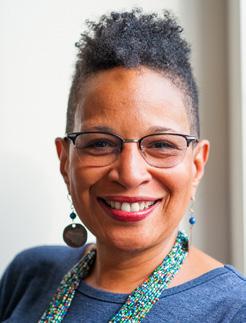
Calling all lovers of the fiction genres of historical, science, fantasy, and horror. Here is a book that provides all four. The year is 1915 and a terrible secret causes Adelaide Henry to look for a new life, a new start, away from California. Montana beckons, seeking homesteaders. This is Adelaide’s chance. Who is this lone woman? Why does she carry a locked, steamer trunk? Will opening it yield the answers to the mystery? These questions are all resolved while providing a window into early America rarely seen.

Many of us first met Ben Crump in his valiant attempt to provide justice for Trayvon Martin’s family by holding George Zimmerman accountable for the young man’s death. Though Zimmerman was found innocent on all counts by the all-white jury, Crump is the go-to lawyer and consultant for similar cases across the country. Crump’s book was borne out of his experiences watching Black men and women murdered without consequence. He calls the phenomenon “legalized genocide” and explores the concept in detail in this sobering tome.
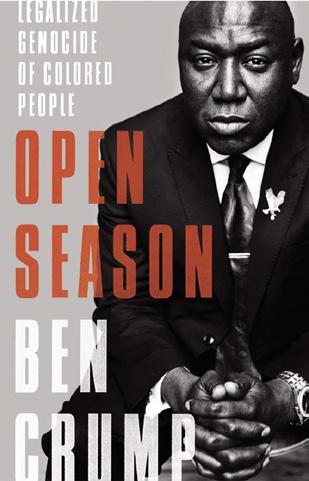
All Ethan Fairmont ever wanted to do was create inventions that could save the world and exercise his freedom to be a smart kid in peace. Some bullies decided Ethan was weird and dedicated their extra time to making his life miserable. One day the mean kids chased him all the way to an abandoned car factory. Eluding them, he discovered something that would make his previously boring life more exciting than anything he could have ever imagined. P


With a temporary buydown1 from SouthState Bank you can lower your monthly mortgage payment for up to the first two years of your mortgage loan. To lower your monthly mortgage payment using a buydown, the seller contributes funds to an escrow account at closing that is used to lower the initial rate of interest you pay. Each month a portion of the buydown fund is used to subsidize your mortgage payment, which reduces the monthly principal and interest payment for the first 1 or 2 years, depending on your agreement. The buydown option is determined with the seller when purchasing your new home.
SouthState offers two buydown options:
• 2-1 Buydown – This allows for the effective rate of interest you pay to decrease 2% for the first year of your mortgage loan and 1% for the second year.2
• 1-0 Buydown – This allows for the effective rate of interest you pay to decrease 1% for the first year of your mortgage loan.2
With an increase in mortgage rates, this could be a great option for you to lower your monthly mortgage payment. Give us a call to learn more about a Mortgage Buydown with SouthState!
866.229.5628 Mortgage@SouthStateBank.com SouthStateBank.com/Buydown
All loans are subject to credit approval and program guidelines. SouthState Bank, N.A. NMLS ID# 403455. Equal Housing Lender. Member FDIC.
1. Temporary Buydown option available for purchase of primary residence only. Borrower must qualify at the Note Rate to be eligible for Temporary Buydown.
2. Buydown funds shall be applied monthly in an amount equal to the amount necessary to reduce the Borrower’s monthly principal and interest payments during the Buydown Period by the difference between (i) the monthly payments set forth in the Note that are based on the fixed interest rate set forth in the Note and (ii) the reduced monthly payments based on a lesser interest rate as set forth in the agreement. After Buydown Period ends, payments are based on the Note Interest Rate.
ByFaith By Rev. Dr. Dwayne Bond
By Rev. Dr. Dwayne Bond
Although commonly portrayed in the media as untrustworthy, hypocritical, money-loving adulterers, the office of pastor is an essential and valuable asset to culture. Biblical pastors set the example for leadership both inside and outside of the church. When it comes to understanding leadership, there is no better set of qualifications for selecting leaders or determining how they should lead than what is found in Scripture.
Found in the pages of Scripture in 1 Timothy 3:1-7 are clear qualifications for biblical pastoring. In this text, Paul is speaking to Pastor Timothy in a time when people were underestimating, disrespecting and lacking confidence in the office of pastor. In the eyes of the culture, pastors were not considered respectable or worthy of emulating, as is often true today. However, Paul understood the importance of this biblical office as well as the hardship and unwarranted persecution that pastors endured. Therefore, he penned this section to encourage them and set the tone for leadership development in the church and culture.
What can leaders learn from the biblical qualifications for pastors in this text? Paul begins by assuring his readers that the principles he shares are trustworthy (verse 1). He then describes the office of overseer (or pastor) as a noble profession — one that is good, respectable and honorable (verse 1). In his letter, Paul clearly conveys that pastors should be skilled men of character who also lead well in their homes and communities in order to be qualified to lead in the church.
Like most worthwhile endeavors, leadership begins with character. Character is what one displays when no one is around. With respect to his character, a pastor must be above reproach (verse 2), which means blameless or “not open to attacks.” A biblical leader is not to allow himself to be open to the attacks of the enemy and should instead diligently guard his heart.
One manifestation of being blameless is to be a one-woman man (verse 2). If a pastor (or leader) cannot commit his heart, time and affection to one woman (his wife),
he disqualifies himself from leadership. Many men including pastors, politicians, entertainers, athletes, professionals and others have ruined their marriages and lives because they were not loyal “one-woman men.” Tragically, this has had a cataclysmic effect on our society as marital fidelity has been diminished in its importance and deemed optional.
Within 1 Timothy 3:2-3, Paul mentions other character traits that are required for effective leadership such as being sober-minded, self-controlled, respectable, hospitable and gentle. In addition, leaders should not be drunkards, violent, quarrelsome or lovers of money. In other words, a leader must not have unrestrained passions, be overly emotional, or lack order and discipline. He should not be isolated from people, habitually drunk, easily angered, argumentative or one who is overly consumed with money and possessions. A pastor who does not meet these qualifications is not fit to serve in the office. In the same way, any leader who lacks these qualities is not fit to lead others.
Along with godly character as a prerequisite for leadership is competence. According to the text, a pastor should be skilled in his ability to teach. Likewise, any leader should be skilled in the area in which he seeks to maximize his effectiveness.
Not only must pastors embrace godly character and skillful competence, but they should also be leading well in their homes (verse 4). According to the text, how a pastor loves his wife and manages his children becomes the litmus test for how he will lead the church. If a pastor fails to lead his home, he has nothing to offer the church. Similarly, leaders should give careful attention to how they are leading their homes before seeking to lead others.
Finally, leadership should be lived out in the context of community. Being well thought of by outsiders as a man of character (verse 7) offers additional credence to the blameless life of a pastor. Likewise, a leader’s reputation within the community offers hints to whether a man is qualified to lead others.
Biblical pastors and leaders who take their lessons in leadership from God’s Word will not only be effective, but they will also provide exemplary role models to the watching world. The impact of their lives and leadership will help to shape our families, communities, cities and nation. May God continue to raise up biblical leaders for the sake of our future and society. P
The Rev. Dwayne Bond is the lead pastor of Wellspring Church.
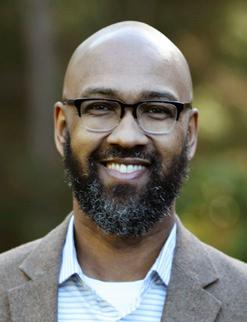
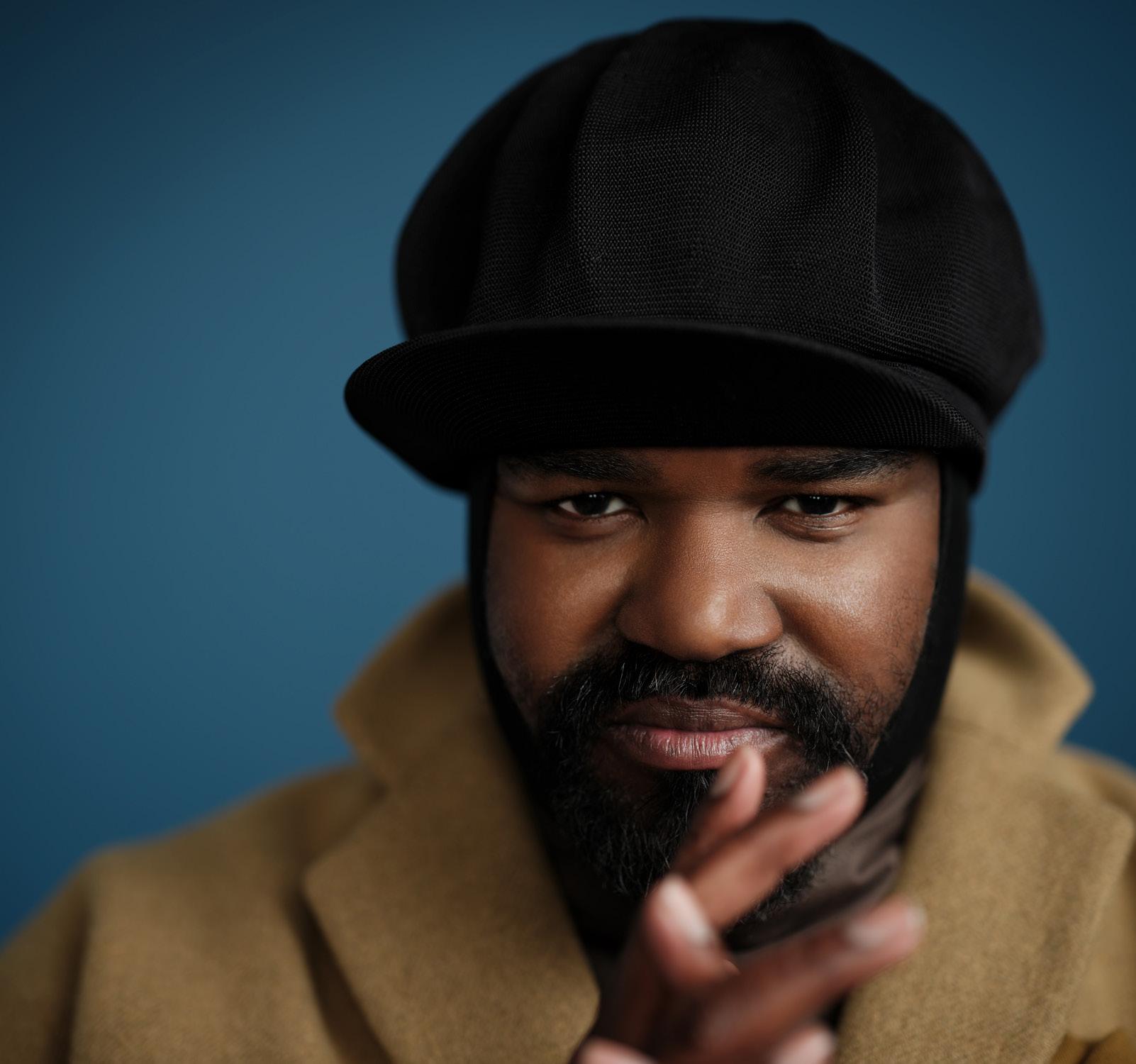
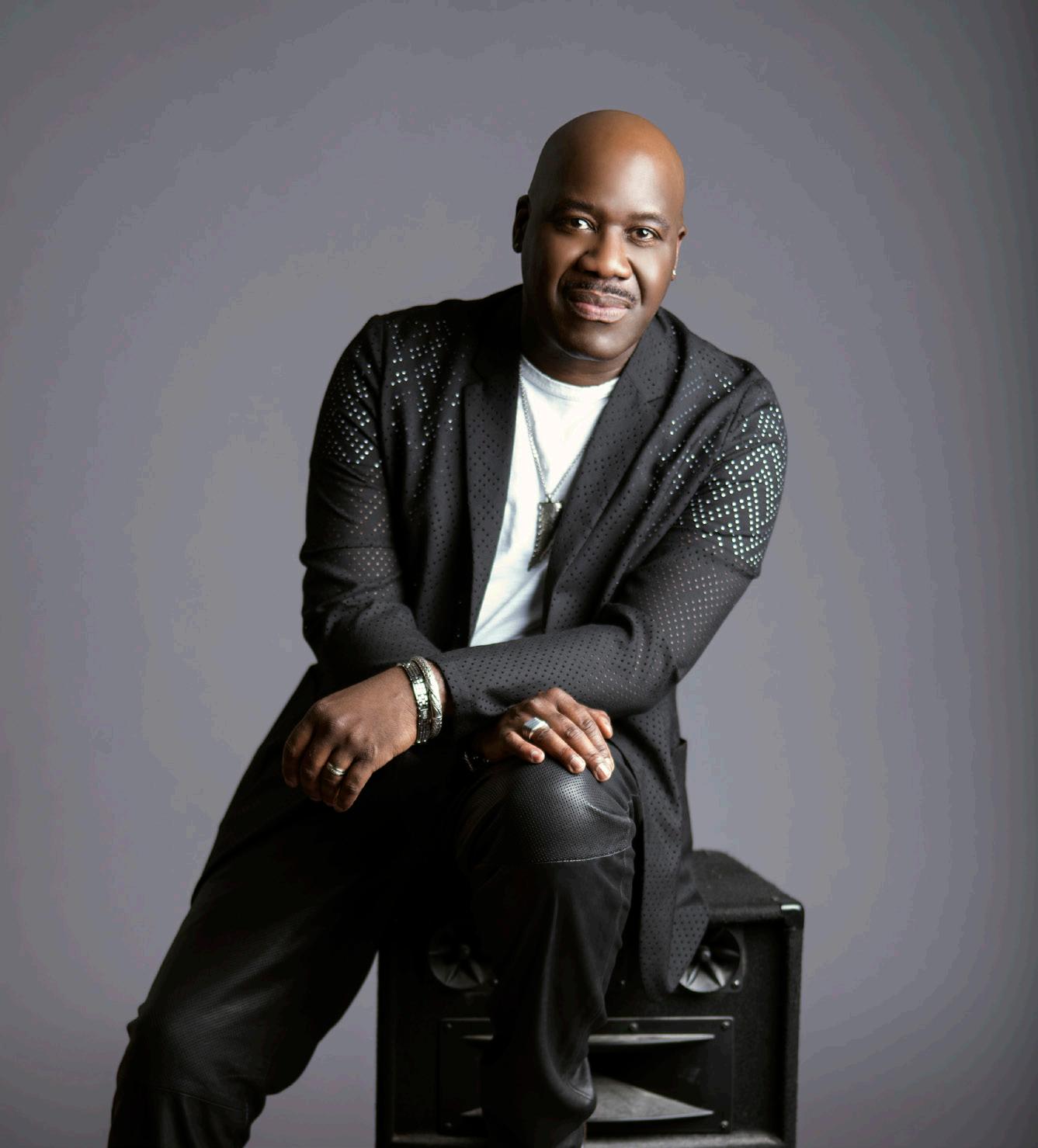




When you talk to Raichelle “Rai” Glover, one thing is immediately apparent — she loves people. In fact, when asked what the most important part of her job at Truist is, she is quick to reply, “making a positive difference in the lives of others — whether it’s clients, teammates or community.”
This passion to serve — fulfilling a purpose greater than her own — has been grounding and a guiding light in her life, both personally and professionally. At every stop in her banking career – first at Bank of America and now at Truist, where she serves as market president and leads the commercial banking team covering the Charlotte region — she has worked to bring the power of positivity and purpose to those she encounters. She considers it a blessing that she has achieved a leadership role with Truist, a purpose-led company that leads with care.
“We’re going to make the numbers and achieve financial goals; and I believe that life is bigger than what’s on a spreadsheet,” said Glover. “It’s about making a positive difference in the lives of others. It’s about not being self-consumed. I try each day to live a life of/and with purpose, and I am blessed to work with phenomenal bankers and partners at Truist who feel the same way.”
She freely credits her teammates as being true partners in service to Truist’s clients, noting it is rewarding to work with clients throughout their personal and business life cycles. She applauds how teammates work together to meet the needs of customers. Truist offers an aspect of authentic care — and that’s different.
“At Truist, local matters to us… and we are here at the right place and the right time to serve.”
Her focus on doing “right” by others and a strong faith were instilled in her by her parents, Benjamin and Lilease. Both longtime educators, her father taught architectural engineering for 54 years and her mother taught French and English for 60 years in higher education settings.
Being the youngest of six children, she says, “I’m a product of my parents. They
instilled in us the notion of working hard, maintaining a positive attitude and not taking oneself too seriously.” She fondly remembers truisms that her parents would share. “A couple of my favorites that I have shared with my own children are: ‘It’s nice to be important, but it’s more important to be nice’ and ‘There are no big I’s and little u’s (you),’ meaning everyone is important.”
These and other truisms, like ‘be watchful and prayerful,’ have guided her during her banking journey, which has included holding over 10 different leadership positions in various banking segments and states.
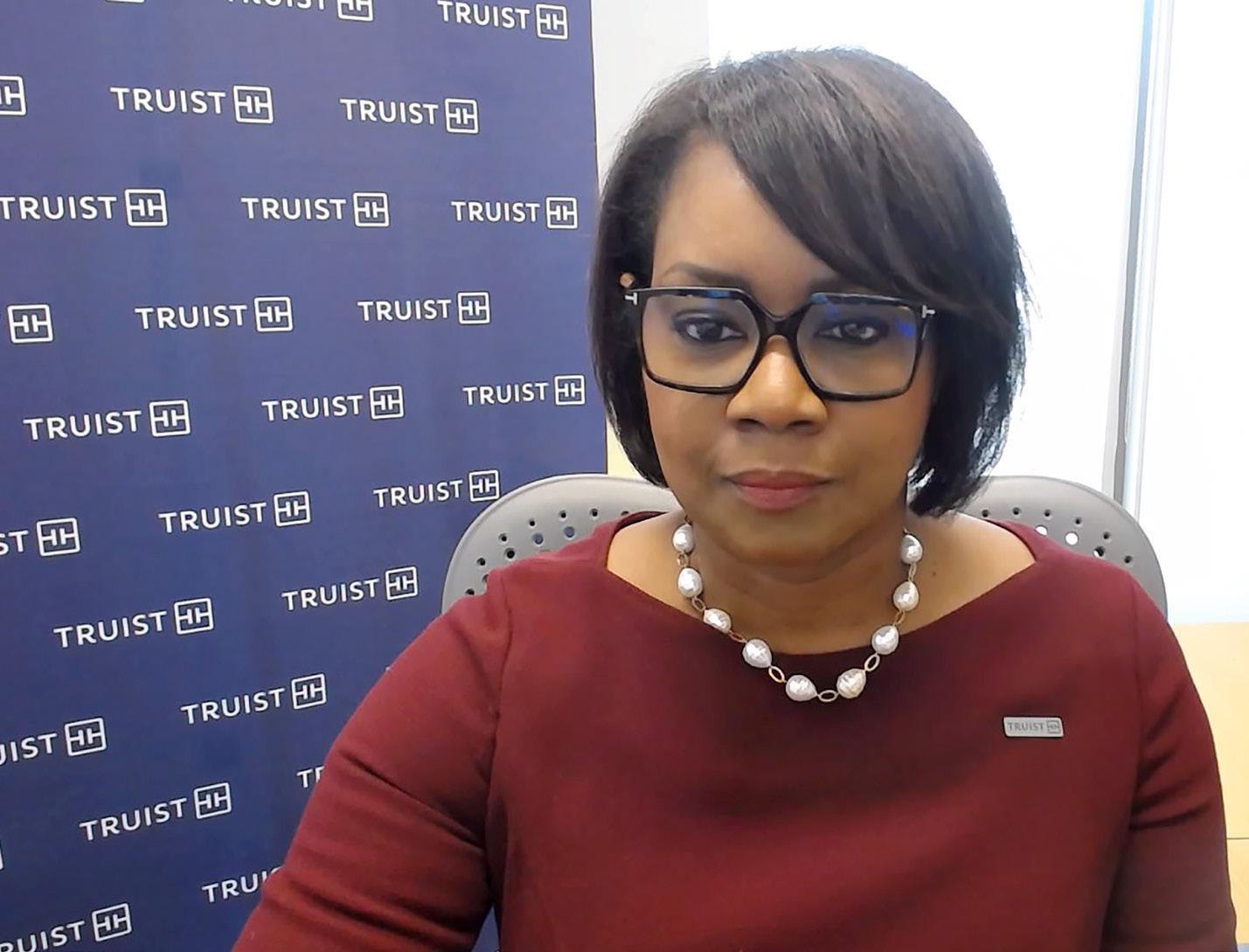
“At Truist, our purpose is to inspire and build better lives and communities; so, I ask my team regularly to share how the work they did positively impacted, inspired and/or helped to better the lives of others then we talk about how we can do even better tomorrow.”
That type of thinking is foundational at Truist and is evident across operations, with focus on clients, teammates and stakeholders. “I’m encouraged that leaders in our community are inspired by the
purpose through which Truist aspires to lead and live,” said Glover.
“When people ask for advice,” she said, “I encourage them to watch for ‘paralysis by analysis.’ It disrupts one’s ability to proceed. Give more than you receive. The “dash” between our birth date and death date really matters. It goes faster than we think!”
When not working, she enjoys quality time and traveling with her family. She also enjoys reading and aspires to join a bowling league again one day. She and her husband Lewis have been married 25 years and have two children, Austin, a recent graduate of the University of North Carolina at Chapel Hill, and Ashley, a sophomore at Wake Forest University.
Although Glover once stepped away from her previous career for several years to care for and spend time with her parents prior to their passing, she’s honored to be back serving her community. “I see my role as serving; it’s not about a title,” she said. “Working for a company that is purpose-led is a powerful thing in my life and I look forward to what’s yet to come.” P
In the fall of 2022, Isa Stokes joined the Charlotte Latin School Academic Affairs Department as Director of Academic Transition and Student Success bringing with him 20 years of experience in the education and child welfare sectors. Isa comes to Charlotte and Charlotte Latin most recently from The SEED School of Maryland, where he served as Dean for three years. There he helped students navigate the rigors of school and transition to college, resulting in a 100% college acceptance rate.
At Charlotte Latin, Isa puts his own story of transition and opportunity to work for all students and families — especially those new to the Latin community or to the independent school world.
Isa understands the need for students to develop critical thinking and executive functioning skills. Himself an athlete, he understands the rigors of the student-athlete schedule and works as an accountability partner with students of all ages offering time-management and self-awareness techniques. Isa aligns with the school’s Mission and Core Values in his quest to engage students and collaboratively ensure success for students of all ages and their families.
Isa has a lifelong love of working with students. He also enjoys tennis, basketball, and football and was a former junior tennis amateur.
We are Hawk proud to introduce Isa Stokes.
Call today to learn more about the benefits of a Latin education: 704.846.7207
Charlotte-Mecklenburg Schools has launched a new mentoring program, the CMS Male Empowerment Network, an initiative to promote the importance of fathers and positive male role models in schools.
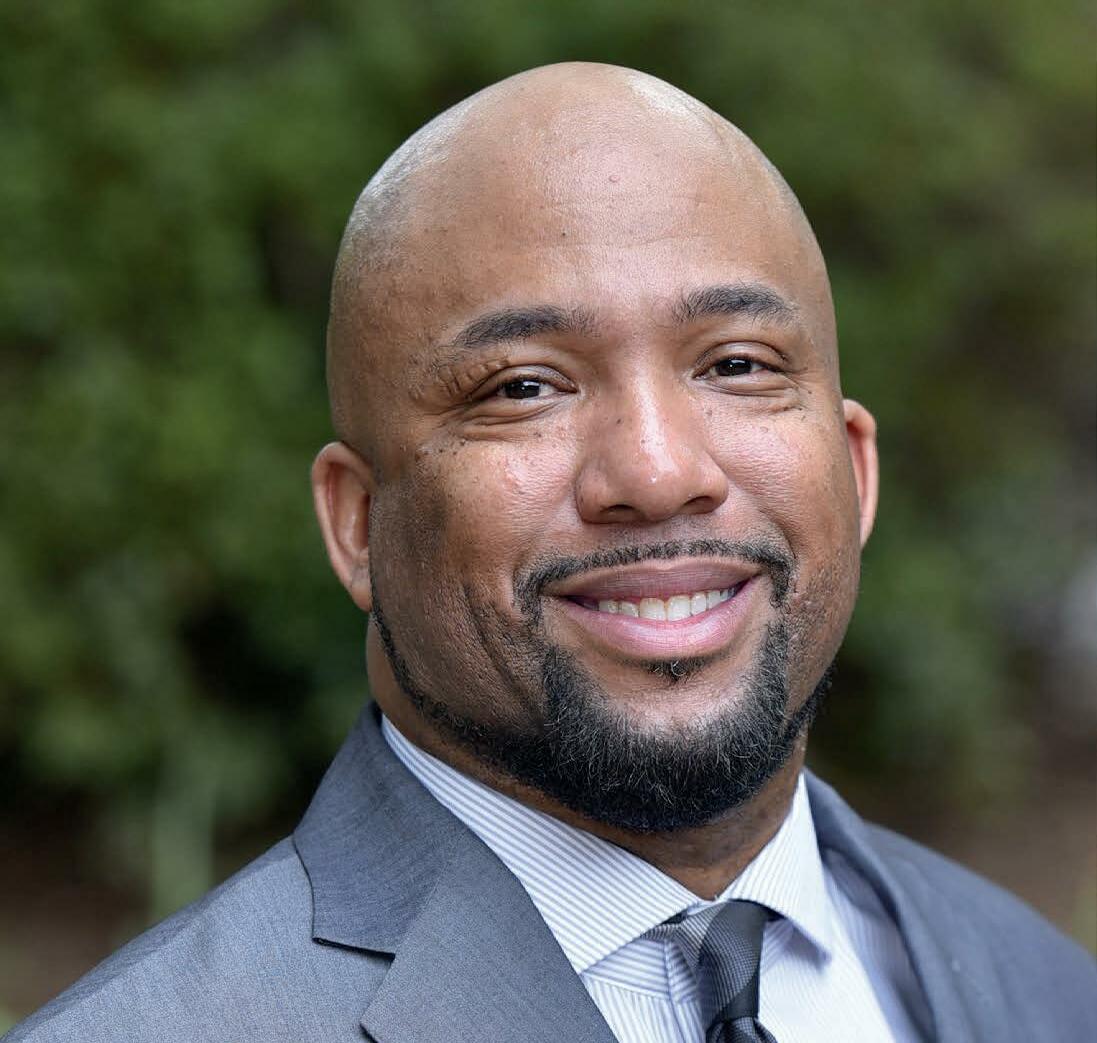
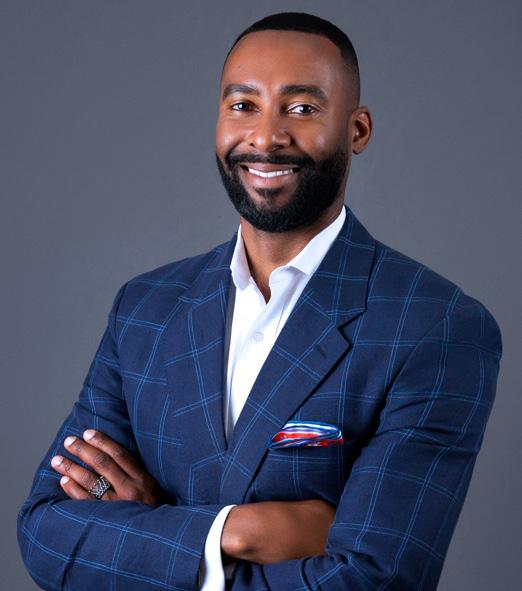
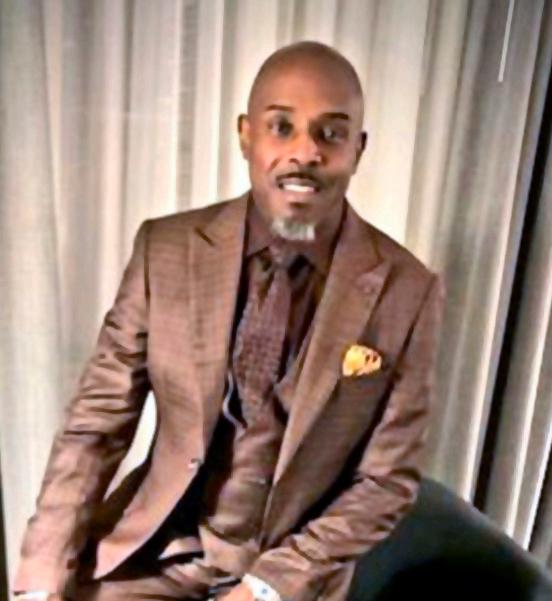
“CMS has always had male engagement programs, but it’s been in pockets,” said Harold C. Dixon, CMS family engagement specialist for 36 years, and leader of the initiative. Each organization worked independently until now, he said.
About two years ago, Dixon had the idea to bring all the male engagement programs together under one umbrella to streamline their efforts and measure the impact on student achievement. Dixon paid close attention to what the community’s concerns were for CMS students. Hearing community discussions about school attendance, preparing for life beyond high school, presence in schools, and restorative practices, he took the information and, over the past school year, worked and planned how to pull it all together.
Dr. Karen L. Mapp, senior lecturer on education at the Harvard Graduate School of Education, is a national leader in family engagement among schools nationwide. Dixon sought out an opportunity to work
with Mapp’s graduate students on this project -- CMS was awarded with the incredible opportunity. The graduate students were excited to put together the handbook for such a unique project that encouraged men to become more involved in schools.
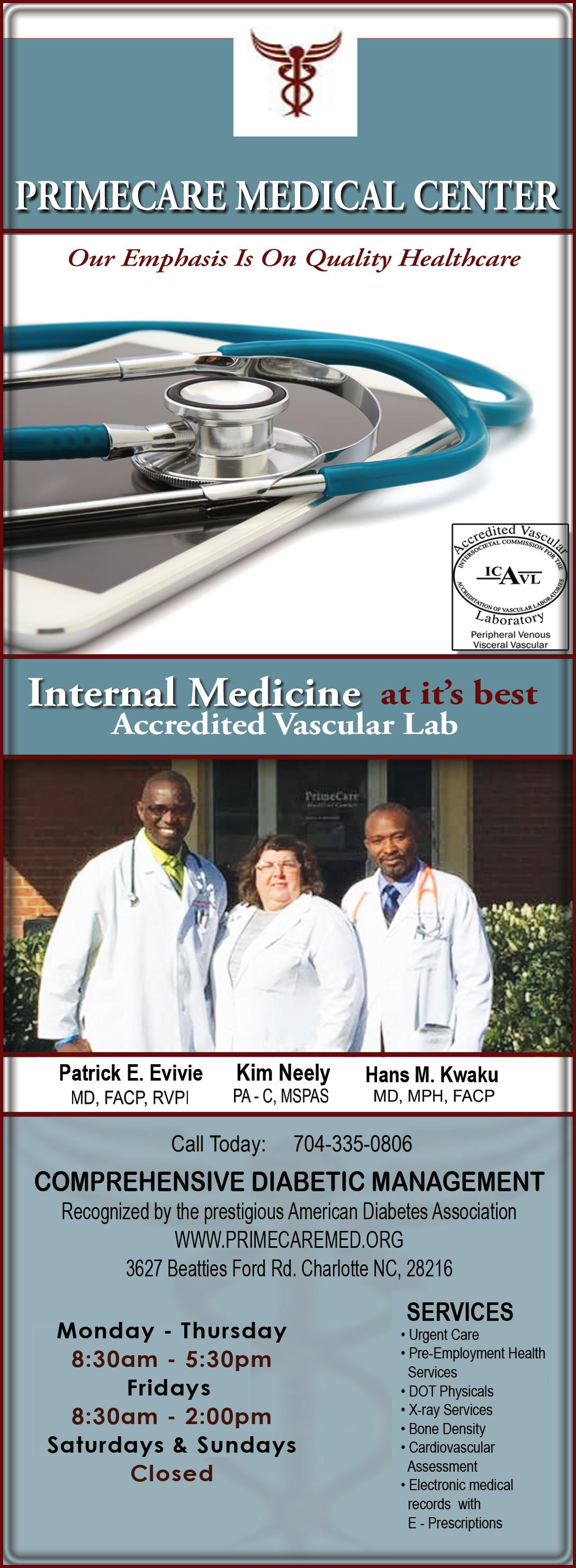
The CMS male mentoring program launched with 14 Title I Schools that volunteered to pilot the program: Albemarle Road Elementary, Charlotte East Language Academy, Hidden Valley Elementary, Oakdale Elementary, Devonshire Elementary, Joseph W. Grier Academy, J.H. Gunn Elementary, University Park Creative Arts School, University Meadows Elementary, Merry Oaks International Academy, Wilson STEM Academy, Harding University High, Garinger High School and Marie G. Davis School.
The program focuses on four pillars: attendance and academic success; restorative practices; the power of presence; and life after high school — college and career. Each pillar will be spearheaded by a network of community volunteer organizations that are leading the work in male engagement and have a history of providing these programs in our schools.
Community partners include, among others: Fred Shropshire of WCNC-TV, community face and spokesperson for the group; My Brother’s Keeper; Be There Dad; Project BOLT; All Pro Dad; and the Renaissance West Community Initiative. Additional thought partners and supporters include: Latisha Hensley, CMS director of family and community engagement, Title I; and Chiquitha Lloyd, director of CMS diversity and inclusion.
“We have such a strong and empowered pool of successful and influential men in our city it just makes sense to connect them to our children in our communities,” said Shropshire. “The CMS Male Empowerment Network will make the kind of impact… that will make a meaningful and long-lasting impression on the kids.”
The mentoring program has a board of directors, a team of parents and staff at each school and mentors for each of the minimum of 50 student mentees. Teachers will recommend students to participate in the program.
Who are the mentors? They’re calling all men throughout the county! Families, CMS staff and men of the community. Extensive recruitment efforts have been months in the making. Mentors are men who are interested in making a positive and consistent impact in a child’s life, and can successfully pass a CMS background check and participate in a series of trainings. The motto of the program is: “Superman ain’t comin,’ but the men are!” Hundreds of men are showing up to the group’s interest meetings.
There are plans to open the program to all 94 Title I CMS schools and a CMS Women Empowerment Network is being considered to start soon.
Dixon said during his long career with CMS, he’s witnessed the positive impact male involvement in schools has had locally, statewide and nationwide. He said men can be present, involved and engaged in students’ lives in ways that will greatly benefit their experiences. P
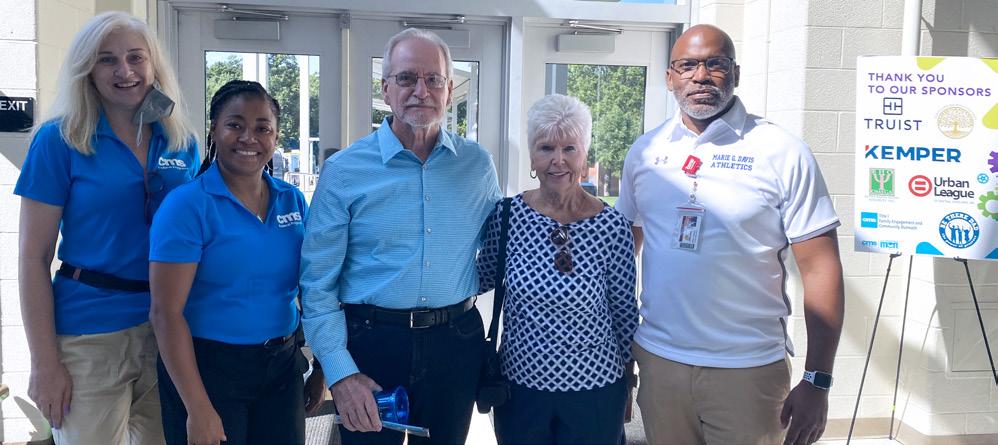
Drone
Drone
Goodwill has always been known for its many thrift stores — with a wide variety of gently used clothing, home goods, electronics, books and more. But did you know they also offer training classes? Goodwill Industries of the Southern Piedmont's most recent course takes students to new heights with its free drone pilot training class.
The future of aviation is happening now. Drone technology is changing the way we capture moments with pictures and video. Goodwill Industries of the Southern Piedmont



(GISS) understands the importance of this technological advancement by providing this resource to the community.
The “Introduction to Commercial Drones (UAS/Drone Part 107 Prep)” class gives students hands-on experience to legally fly manual drones in eight weeks.
With flexible scheduling, the training is offered during the evenings on weekdays to accommodate students’ work schedules and other daily obligations.
Training classes are held at the Goodwill Construction Skills Training Center at 71335 Alleghany St. in Charlotte. No prior experience is required, and all course materials are provided, including computers. Many students already have drones and bring them to class.
As a Federal Aviation Administration commercially rated pilot instructor, Dr. Taurean Walker has taught the course at local universities and colleges for four years and two years at Goodwill. “In class, we cover many aspects of aviation, including airspace, weather, weight and balance, federal regulations, flight operations and performance charts,” Walker, who has more than 2,000 hours of flight time, said.
After successfully completing the drone pilot course, Goodwill pays for students’ Part 107 certification to become an FAAlicensed commercial drone pilot. Walker explained, “It typically takes 3 to 7 weeks of preparation for the exam.”
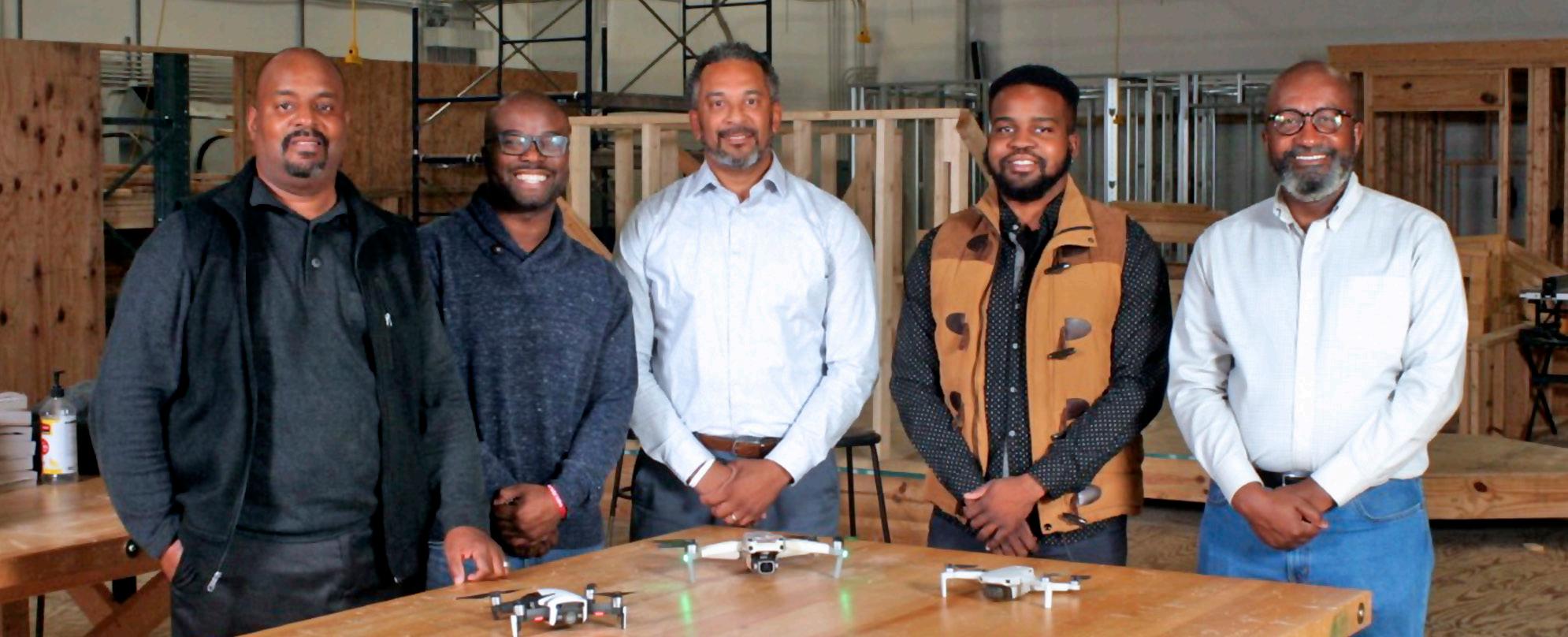
Markus Perry, a graduate of the Goodwill Drone Pilot (GDP) program and owner of Focus Photography, first heard about the program from his wife, who saw a commercial about the course. “I felt there was more to me. I’m now in a space where I want to do something meaningful and purposeful.”
As a retired captain with the Gaston County Sheriff’s Office, graduate of
the GDP program Joseph Clemmer was looking to add another skill and profession to his resume. “I was getting bored, having been retired for two years,

and decided to find something to keep me busy,” he said. Clemmer and Perry were classmates and completed the course in the fall of 2021.

With only 10 to 20 students per class, those enrolled can expect to receive the attention they need to be successful graduates.
Perry said the course has greatly expanded his business. As a result of taking the course, he’s had
several new opportunities, such as shooting commercials, shooting 46 acres of land for sale and speaking engagements. “I put the drone in my toolbox as an extension of my photography business.”
Clemmer is now a drone pilot with Duke Energy, inspecting power lines and equipment on service poles in
North and South Carolina. Next, he plans to open his own business doing inspections and events.
Becoming lifelong friends has been a special bonus for the two men. Perry and Clemmer meet regularly with classmates and instructors for continued support with their careers. “I have been blessed to find a new career in the drone industry and have shared this journey with some brothers that make it more exciting and fun,” Clemmer said.
There are so many career opportunities in the drone industry. Walker offered a short list of possible commercial drone professions:
• Real estate photography
• Aerial mapping and photogrammetry

• First responder drone pilot
• Insurance inspector
• Traffic reconstruction
When asked where he sees drone technology going in 5 to 10 years, Marvin Kelley, director of construction and trade training with GISS, said drone technology will be constantly evolving.
“In the construction industry, drones will be utilized for site surveys to increase efficiency, lower costs, increase accuracy and improve photographic visualization,” he said. Drones may also be used for disaster management, and for security and surveillance to “gather information in high crime areas,” he added. P
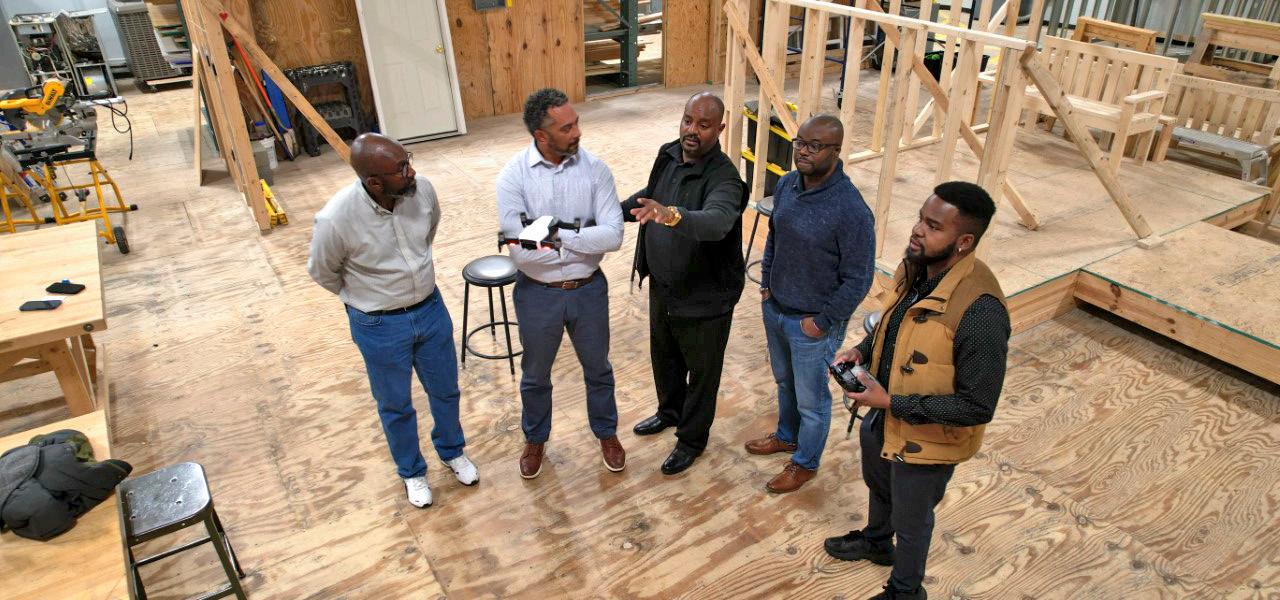
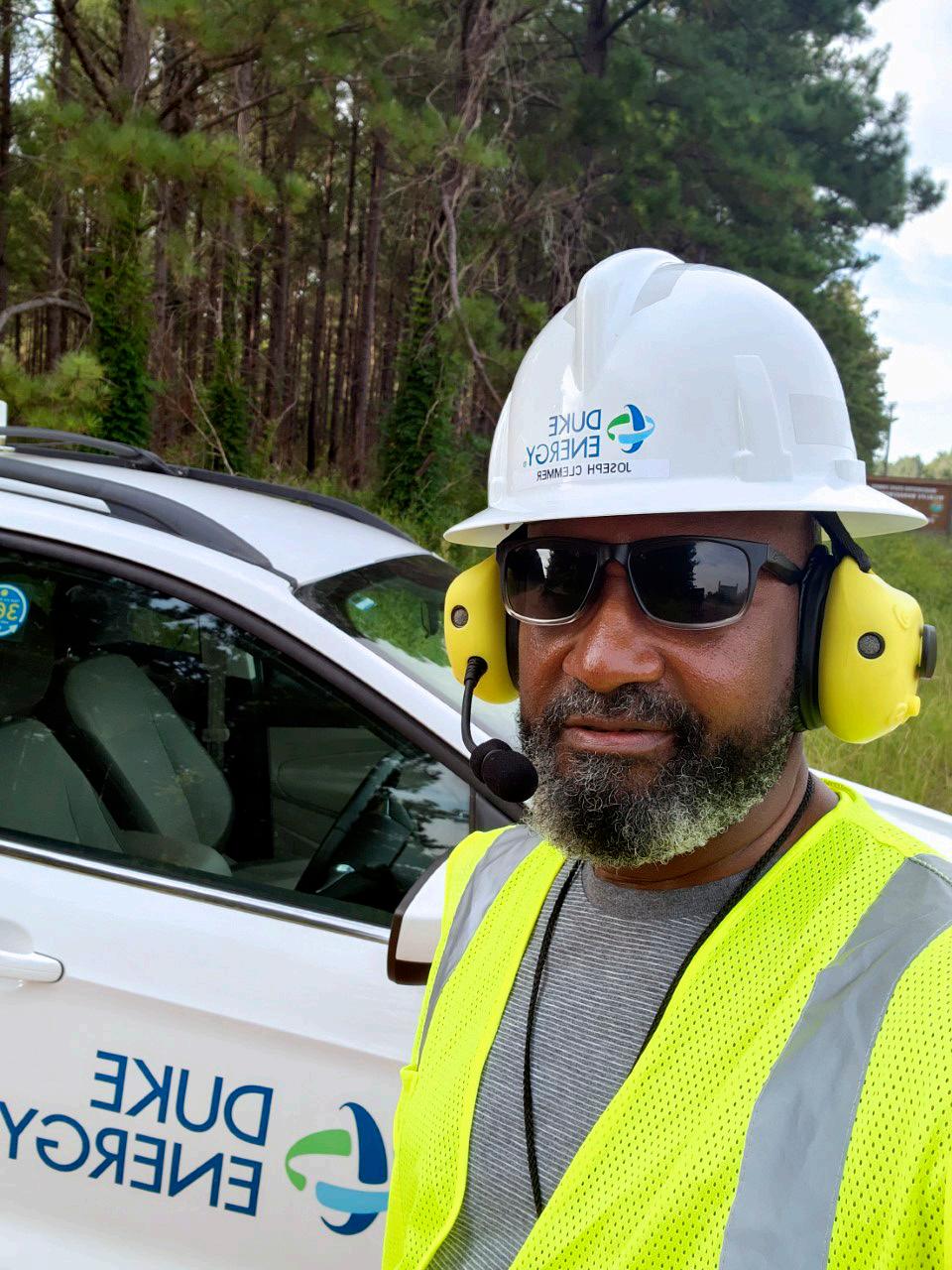

Get the education you deserve at a cost you can afford. Find out how a scholarship from Central Piedmont can help you conquer possibility.
cpcc.edu/afford
“
”
Being able to go to school without worrying about costs — I’m just grateful.
Smith initially created the Steve Smith Family Foundation to focus on the awareness and prevention of domestic violence and the health, wellness and needs of underserved families and communities.
Many of the services and programs the foundation offers are based on childhood experiences Smith had growing up in an underserved Los Angeles community with a hardworking single mother who was a survivor of domestic violence (not by his biological father), said Smith. He began to realize how the government assistance his family received, and the public resources and services they otherwise lacked, impacted him overall.
June 2023 will mark the 10th anniversary of the foundation which now consists of a medical clinic,
Most people know Steve Smith Sr. as the scrappy, toughas-nails wide receiver who played in the NFL for 16 years, including 13 years with the Carolina Panthers. Smith and his teammates valiantly battled the New EnglandPatriots in the 2003 season Super Bowl match in which Smith, wearing number 89, made a spectacular 39-yard touchdown reception. Although the Panthers lost that game, 32-29, the team gave Panthers’ fans great excitement and something to be proud of that year.

Even then, when Smith wasn’t dazzling fans with spectacular catches and swift sprints into the end zone, he was busy, passionately building a legacy off the field in the community.
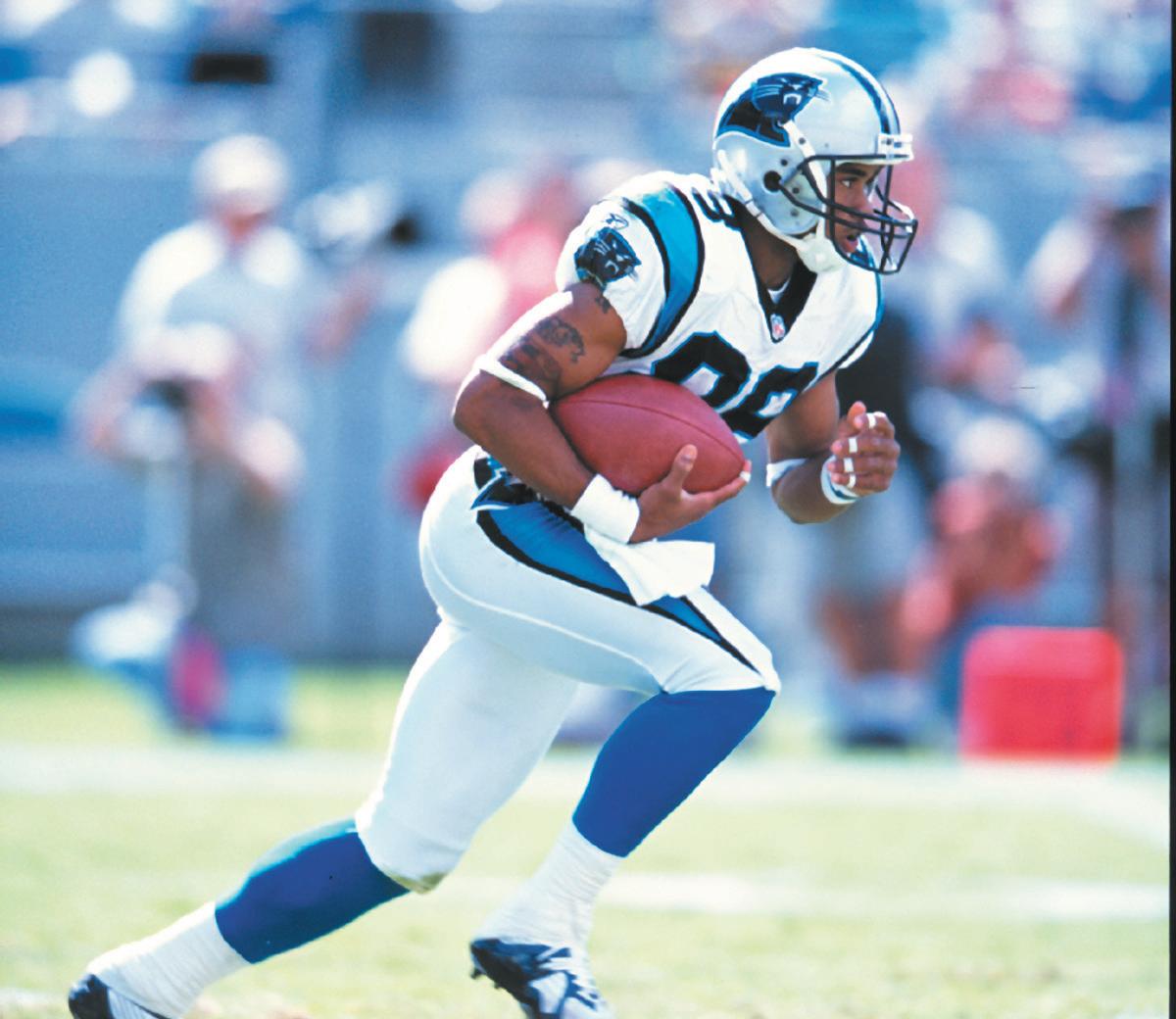
mental health facility and an afterschool program, all of which are “really servicing the full body of our community,” he said. Smith hired an agency to run the foundation which was private for a long time.
“Because of my name and being a professional athlete, I had to prove that my foundation was legitimate, and that we are doing things that really impact and help the community. I feel like, at times, I had to go the extra step that other people didn’t have to,” he explained, adding that some people questioned whether they should give to the foundation because of his wealth. However, being personally and financially invested was never a question for him, he added. He wanted to see the same commitment from the local community.
“If it takes a village to raise a child, how many people does it take to raise several children? It takes a community.”
Smith personally gave about 85 percent of all donations to the foundation in the beginning and learned a lot over time from working with other foundations in the area, including the challenge of balancing home life, professional responsibilities and taking personal time for himself.
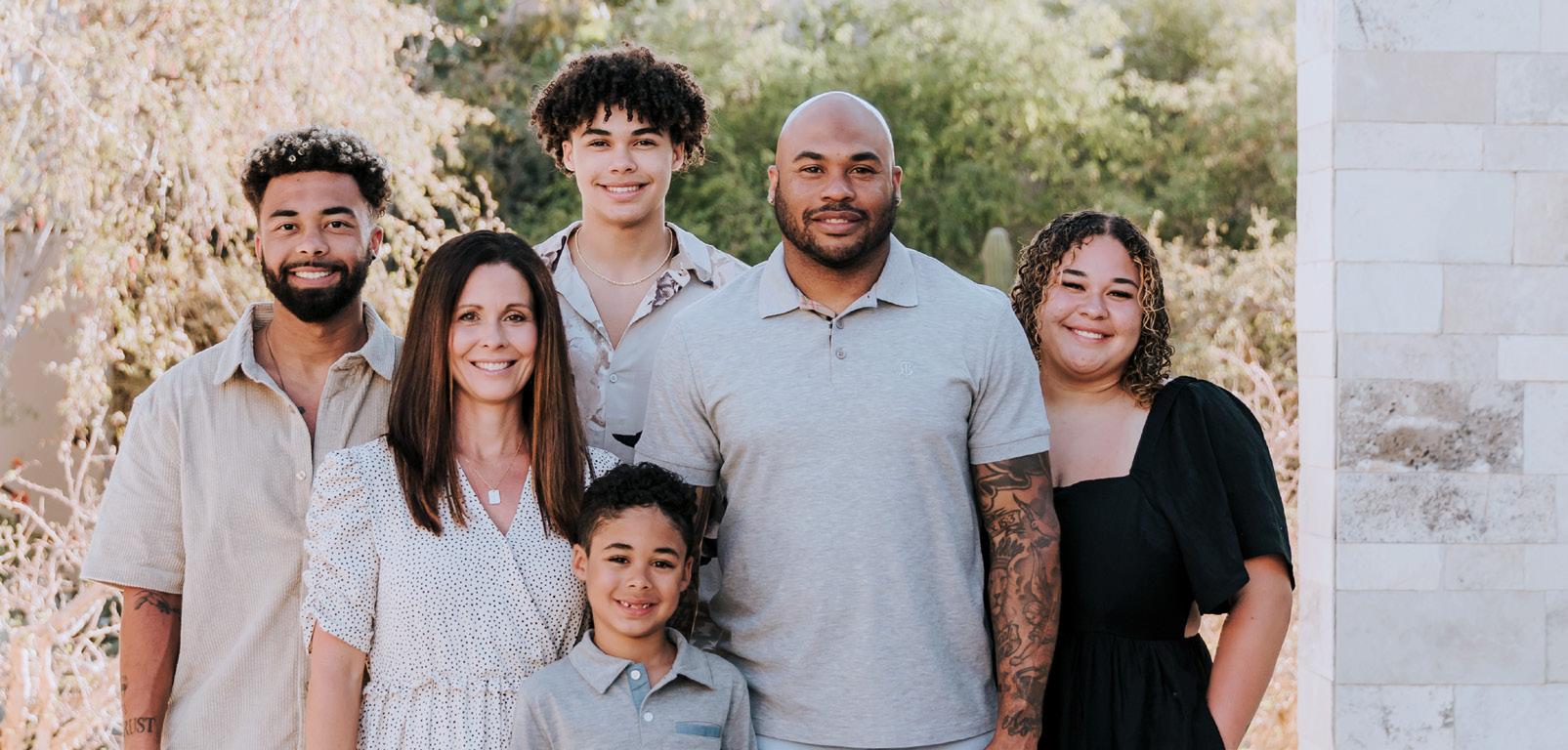
“When there is a lived experience, how you come to work, how you come to that foundation, how you impact it, how you want to leave your imprint — you just come with a different energy, and your focus is different because you understand what’s on the other
The foundation’s medical clinic provides medical services for the uninsured and those who don't have the money or insurance to pay. Smith recalls that as a child his family did not always have insurance or a primary care doctor for regular checkups. So they would go to the emergency room instead. He said they often had to choose between paying for medical services, utilities or food.
“I think those are basic necessities that you shouldn’t have to really ask yourself if I have to take myself or my child to the
the children to school and back home. They were socially distanced and “loved on,” said Smith. He said during the height of the covid pandemic, his own children who had all the resources they needed, still struggled.
“If we had all the resources, and our kids were struggling, what about the other kids who didn’t have all the resources? They had to be struggling, too.”
The afterschool program also serviced children experiencing homelessness, Smith said. Some were living in shelters and had
side of what some of these families are going through when they’re in these situations,” Smith shared.
doctor or hospital to receive just an annual check-up or something going on, Smith said.
The medical space on Central Avenue is currently being renovated to become an urgent care for only the uninsured and will reopen in 2023.
The foundation also offers an afterschool program. “[When the covid pandemic started], we rented out a 10,000 square foot office space, and we had about 108 kids there. I hired about 14 teacher assistants that were let go during covid that didn’t have jobs, ” he said.
The program served the children breakfast and lunch. The school transported
nowhere to go, because they had to vacate the shelters during the day.
The Steve Smith Family Foundation is also partnering with Mecklenburg County, Alliance Health and Daymark Recovery Services to open a Behavioral Health Urgent Care (BHUC) facility this year. The goal of the BHUC is to provide a community-based option to stabilize individuals experiencing behavioral health crises in a way that reduces unnecessary trips to the emergency room, hospitalizations and incarcerations. It will operate 24 hours a day, 7 days a week. The BHUC will also work with law enforcement to create better protocols and

“When there is a lived experience, how you come to work, how you come to that foundation, how you impact it, how you want to leave your imprint — you just come with a different energy, and your focus is different because you understand what’s on the other side of what some of these families are going through when they’re in these situations.”
— Steve Smith Sr.Steve Smith Sr. and his family. (Back row, from left to right): Peyton Smith, Boston Smith and Baylee Smith. (Middle row: Angie Smith (Steve Smith Sr.’s wife) and Steve Smith Sr. Front: Steve Smith Jr., a.k.a. “Deuce” Photo by Studio Eminence Photography Steve Smith Sr. at his Football Pro Camp for Maxwell-Gunter children in June 2015 at Maxwell Air Force Base in Montgomery, Alabama. Photo by Melanie Rodgers
programs to approach mental health with a healthy versus “skewed” perspective, Smith said.
Living in Charlotte for nearly 20 years now with his wife, Angie Smith, with whom he has four children, Smith said he has formed many relationships here and wants to give back to a city that gave so much to him in the early years of his career by helping him mature as a young man and a businessman. After all, he grew into an adult here — right along with a city that was finding its own identity at the time. He learned a lot and made some mistakes during his transition from football player to foundation founder, he said.
“The one thing I will say is that when you know how the sausage is made, it can leave a bad taste in your mouth,” said Smith. “It’s tough to make decisions that are less emotional and more data-driven.”
Although he grew as a San Francisco 49ers fan and would love to have played in Candlestick Park (now demolished), Smith is grateful the Panthers drafted him in the 3rd round of the 2001 NFL draft.
“I played in an all-star game in Alabama, but that was the furthest I’d ever traveled on an airplane. So, I didn’t know where North Carolina was. I didn’t know how far it was.”
Smith didn’t know what he should be excited or disappointed about and just had to “take it all in.” He said one thing that was certain — after playing for Pop Warner and high school football teams, he felt it was going to be the NFL or bust. “I always had a desire to play in the NFL. There was no plan B.”
Smith first attended Santa Monica College where he was spotted by University of Utah recruiters who were there to look at another receiver — and Utah offered him a scholarship.
“I got the opportunity to go to school for free. My parents couldn’t afford to send me to school, especially out of state. Going to school away from community college or a state school in Los Angeles — it was my chance. I got the opportunity and tried to take full advantage of it.”

And that he did.
Smith is a five-time Pro Bowl selection, a Carolina Panthers Hall of Honor inductee, a Class of 2022 Pro Football Hall of Fame semifinalist and the Panthers’ all-time leader in receiving yards.
Despite this success, Smith has taught his children a different kind of lesson. “One of the biggest things I’ve done in my football career that I make sure and emphasize is, my kids don’t have to run, jump, catch, flip — they don’t have to play sports to go to college. So, they can focus on academics. Academics in our home is first. Sports are second.”
The Smiths’ oldest son, Peyton, graduated from Wofford College where he played soccer; son Boston is being recruited to play basketball by several schools; daughter Baylee attends cosmetology school; and their youngest child, Steve Smith Jr. (Deuce), is still in grade school.
As a permanent seat license owner of the Charlotte Football Club, Smith enjoys attending Major League Soccer games with his family. As an NFL analyst, Smith said he can’t always watch those games as a true fan. But with soccer, he said, “It’s one of the few times I can be in the stadium, and it’s not about me. It’s actually about soccer and just being a fan.” P
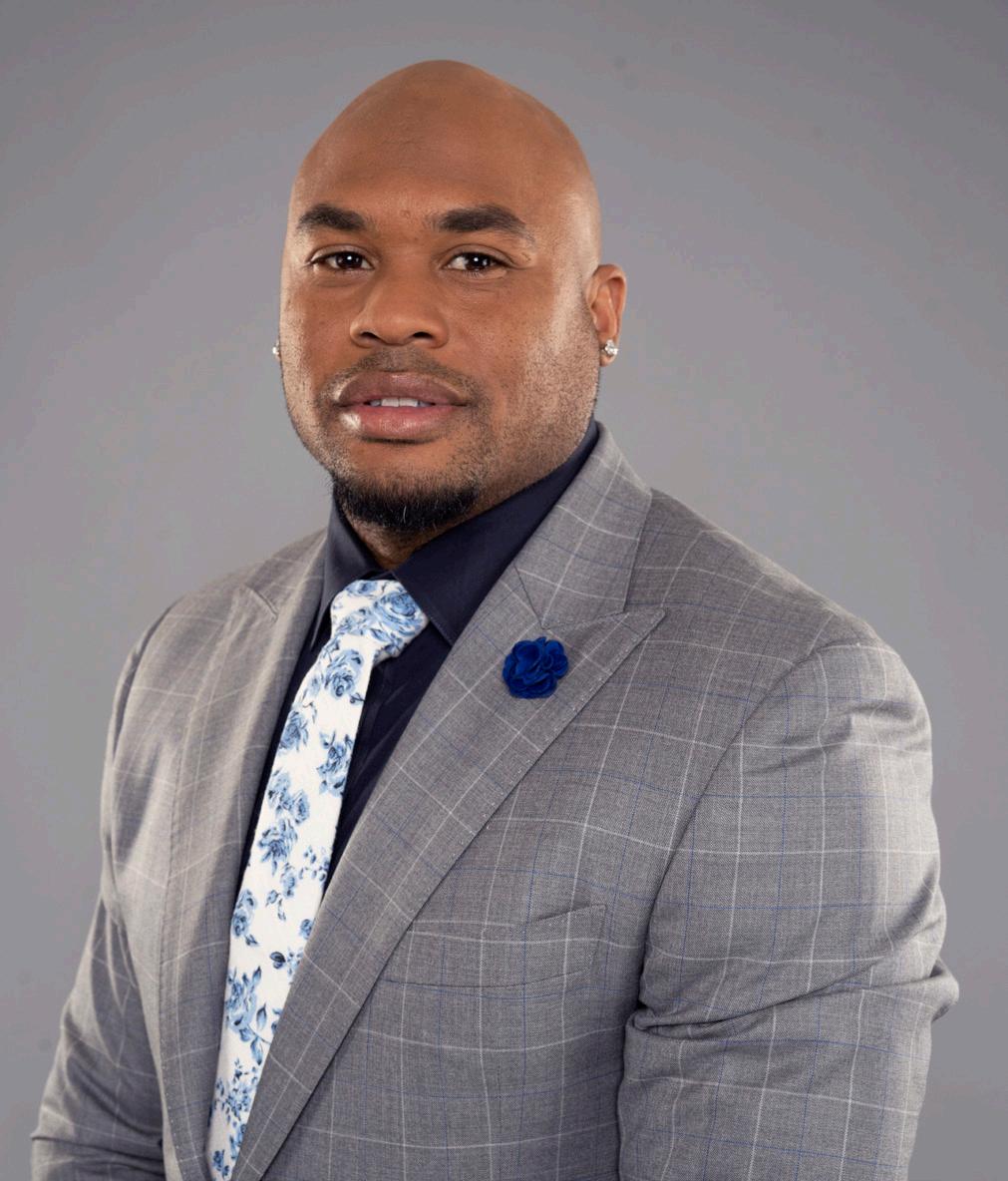

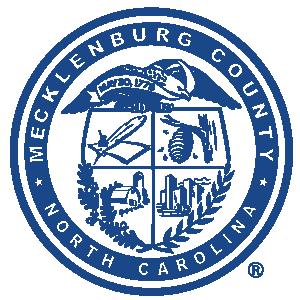











As we begin this New Year with resolutions, hopes and dreams for personal progress, and achievements, many retirees, seniors and others nearing retirement are just hoping they can stay afloat. Many of those living on fixed incomes, who are still reeling from the devastating blows of last spring’s unprecedented 40-year high inflation rate of 8.6 percent in the U.S., are especially hard hit.
Although the U.S. annual inflation rate had decreased slightly to 7.7 percent by November, a U.S. Inflation Calculator online report showed the following cumulative impact of inflation on some of our daily living expenses through October 2022.
Based on the October consumer price index (CPI) from the Bureau of Labor Statistics, the U.S. Inflation Calculator stated that:
• Shelter or housing costs rose 4.7 percent, the largest 12-month increase since May 1991
• Food prices increased 7.9 percent, the biggest annual increase since July 1981, with the cost of groceries rising 8.6 percent and the price of eating out 6.8 higher
• Automobile gasoline/fuel prices jumped 38 percent from a year earlier, and
• Energy utilities, which combined items like gas, electricity and oil prices jumped up 25.6 percent
To help ease the bite of ongoing inflation, last year the Social Security Administration announced an 8.7 percent cost of living adjustment (COLA) increase in 2023’s monthly Social Security benefit payments.
A study by the Center on Poverty and Social Policy at Columbia University said, “About 50 percent of seniors rely on Social Security for the majority of their income,” especially those on fixed incomes.

So for many Charlotte-area retirees like Anne, whose only source of income is her monthly Social Security payment of approximately $1,200, the COLA increase will be a blessing, especially since her total monthly living expenses often

equaled or exceeded her previous Social Security amount.
Plus, her bills keep growing because of inflation and the frequently escalating cost of medication, utilities, gasoline, unexpected car repairs and maintenance for her recently purchased 20-year-old vehicle. Due to a new health challenge, she also now needs more medication and currently doesn’t drive as frequently.
“So I’m debating if it would be more economical for me to let go of my automobile to save on gas, auto insurance and car repairs,” said Anne, who is in her mid-70s. “But then, I’ll have to depend more on Uber, Lyft or other people and pay them for gas, etc. — which ultimately might be even more expensive.”
Meanwhile, to help keep her transportation and other costs down, she said, “I just fill my gas tank up completely once a month, then fill up again when it gets down to a quarter tank.”
This year’s COLA increase was also established to help offset last year’s rise in cost of the standard Medicare Part B premiums which climbed from approximately $148 per month to $170.
So beginning this month, the average individual Social Security recipients should get an increased payment of approximately $146 per month, and married couples filing jointly will receive about $240 more each month.
Certainly, other retirees, like Norma and Ernest, a retired couple in their mid-70s, will gladly welcome the 2023 Social Security COLA increase.
It will definitely help pay their biggest monthly expense — rent for their onebedroom market-rate apartment in Matthews — which they have lived in over 10 years. But since inflation began it is now over $1,400 per month. Fortunately, that cost also includes a few of their utilities such as gas, water, etc.
After working for George Washington University for nearly 40 years, Norma retired in 2007, with a small annual retirement check. But that retirement fund ran out two years ago. She continues to receive a monthly Social Security check. “But since I stopped getting a retirement check in 2020, that has become a problem, because I run out of money before the end of the month,” Norma explained.
Although Norma’s partner Ernest pays most of the bills, buys the groceries and does “all of the cooking because he likes to,” Norma said, his retirement income,
though still limited and fixed, is a bit higher than hers. He’s also a gracious provider, she added. “But I’ve always been a selfsupporting person, so I like having my own money to take care of my bills too.”
She added, “Plus, I’m a diabetic with other health issues. So I take five to six types of medicines.” Before she switched her Medicare insurance plan in November 2021 from AARP to an AARP Advantage plan, she was paying nearly $300 per month for Medicare and her medicine.

“God has blessed me, because paying for medicine is one of the things that was keeping me without money before the end of each month,” Norma continued. Now, she doesn’t pay for any of my medications out of pocket.
“This change has been one of the greatest things that has helped me survive during inflation, because it has helped reduce my medication expense greatly,” she said. “Medication is expensive, and I really don’t know how anyone that’s taking medicine right now and has to pay for it themselves, can afford it. I think that a lot of people can’t afford it, so they just don’t take it!” said Norma.
“Since inflation began, we now spend about $350 per month on groceries, compared to about $275 before inflation.
However, we still have to eat!” Ernest said. “I do the grocery shopping and the cooking, which is relaxing for me. We also don’t go out to eat a lot,” he added. “We eat at home instead. Plus, we have leftovers for another day or so.”
“We look at and prioritize expenses… But there are some basic things such as rent, utilities, food, that [we must have]!”
Carol, another retiree, said she sells items that she doesn’t need on eBay, Facebook Marketplace and other websites.
“My son lives with me and helps pay my mortgage,” Carol said. “We also combined our cell phone plans to reduce monthly expenses and cut cable and now stream all TV.”
“I take advantage of most senior discounts offered and credit card programs offering rebates and points when we go to purchase items and economize in almost every way we can,” she continued. “I also often, when eating out, take home half of my meal for leftovers the next day — it cuts the expense in half versus having to cut out socializing all together.”
She added, “I’m always looking for ways to decrease monthly costs as my deficit [coverage] comes from savings, which is a limited resource.” P
Ernest, Norma and Norma’s granddaughter KayleighAbout 50 percent of seniors rely on Social Security for the majority of their income, especially those on fixed incomes.
Center on Poverty and Social Policy at Columbia UniversityPhoto by Demetrious Watkins
At United Way of Greater Charlotte, we strive to build strong communities — that’s why we’re honoring Pride Magazine for 30 years of influential content that touches the souls and spirits of readers.
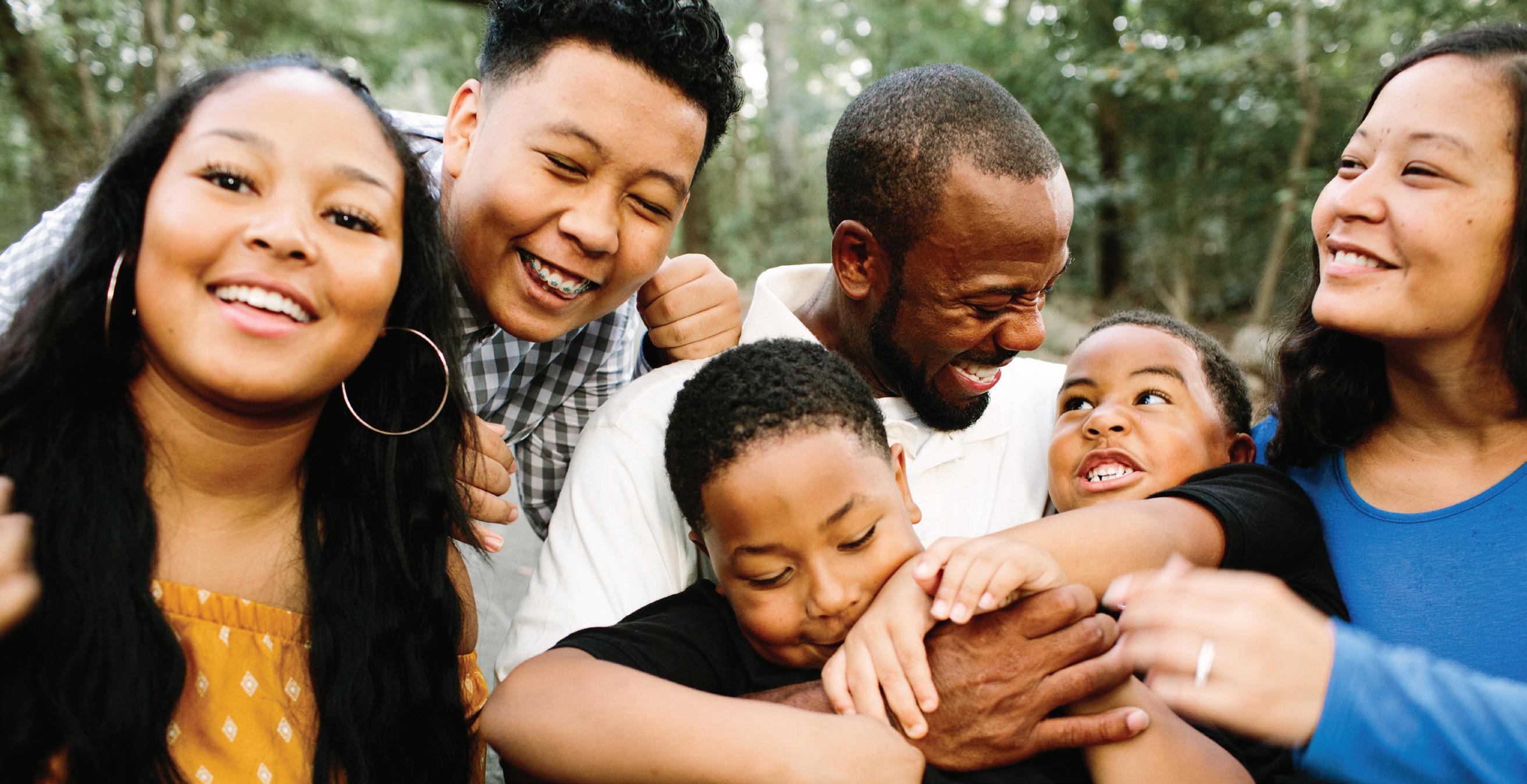
people with disabilities, very-low-income families, and mothers and children escaping domestic violence.
Under Davis’s leadership, Community Link services expanded to include homeownership education and financial literary counseling services, including asset building seminars. The non-profit also offers foreclosure prevention services to help homeowners stay in their homes in 21 counties across the state.
As access to affordable housing units dwindled in the Charlotte area, Davis searched for opportunities to create housing. His initiative resulted in donations of land and houses from various sources, including bank foreclosures. Since 2015, Community Link has renovated or built 21 homes which were sold to veterans who are first-time homebuyers. The agency is currently working to build additional homes through a partnership with a corporate donor.
For 20 years, Floyd R. Davis Jr. has served as president and CEO of Community Link, a nonprofit that helps individuals and families acquire and sustain safe, decent and affordable housing in Charlotte and 16 North Carolina counties. Davis announced his retirement in December.
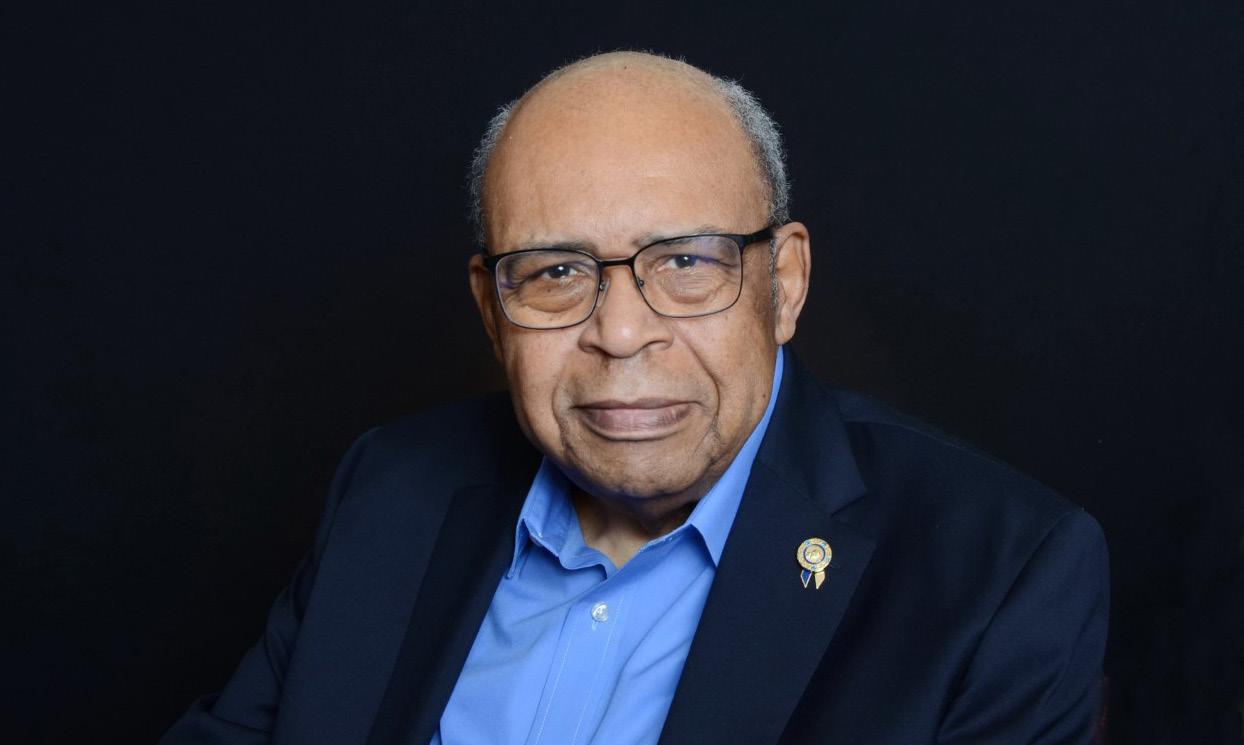
The agency’s Board of Directors has named Community Link Vice President and Chief Operating Officer Tameka Gunn to succeed Davis as president and CEO on January 1, 2023.
“It’s been my honor to build Community Link into a thriving organization that reaches throughout North Carolina,” Davis, the first African American to lead the organization, said. “We are committed to serving our customers whether they are homeless or insecurely housed, need guidance on how to build their assets, looking to purchase their first home, or keep their existing home.”
Davis has made life better for thousands of lower-income families in Charlotte and throughout North Carolina since becoming president and CEO of Community Link in 2002. About 25,000 individuals and families
have turned to the organization for help in the last 20 years and benefitted from Davis’s leadership.
“Floyd’s vision for Community Link led to a complete transformation of the agency,” said Community Link Board Chair Rodrick Banks. “He understood that lower-income people need tools and training to create wealth for their families. He expanded our services to include financial literary classes and counseling to help customers build their assets and even become first-time homeowners. He also collaborated with many other non-profits and expanded our geographic reach to serve North Carolinians beyond Mecklenburg.”
When Davis joined Community Link, the agency provided services to the homeless population in Mecklenburg County. Today, it provides Homeless to Housing services in 16 counties through rental payments, identifying and vetting lodging for rapid rehousing, supplying assistance for supportive housing, or all three, depending on the location. Clients include veterans,
Community Link also participates in the Volunteer Income Tax Assistance program, through which the agency offers free tax preparation to individuals and households of modest means, using volunteers. Community Link began providing these services in 2005 in collaboration with United Way, IRS, AARP and other community partners.
Community Link was founded in Charlotte in 1929 as a branch of Travelers Aid to serve those in need of emergency travel assistance. Community Link still provides relocation services to safe, supportive locations for survivors of domestic violence or human trafficking, people who have suffered a medical crisis, and others in need.
Previously, Davis was CEO for United Way in Flint, Michigan, and Winston-Salem, North Carolina. He served as CEO for two non-profits in Fort Worth, Texas, prior to joining Community Link.
He has served others as well. He currently shares his time and knowledge on the board of directors for the Better Business Bureau and Travelers Aid International. He previously served on the boards of United Way of Central Carolinas, the Charlotte Rotary Club, and the Actor’s Theatre of Charlotte. P
Racism persistently and negatively affects Black men’s health, health researchers say.
This is true even as Black men are becoming more educated. Between 2000 and 2010, total Black undergraduate enrollment increased by 73 percent from 1.5 million students to 2.7 million. According to the National Center for Education Statistics in 2019, 28 percent of Black men ages 25 –29 had a bachelor’s degree or higher.
Although a May 2021 article in Kaiser Health News points to studies that show life expectancy is higher for educated Black men than those who haven’t finished high school, obtaining a better education for many Black men in the U.S. does not always lead to better health.


Black men are still dying four years earlier than white men. “No matter how far you go in school, no matter what you
accomplish, you’re still a Black man,” Derek Novacek, a clinical psychologist, who is researching Black-white health disparities at UCLA, told Kaiser Health News.
Researchers who study the health of various ethnic groups and the social factors that influence health outcomes believe this to be concerning. Their findings suggest the power of discrimination to harm the lives of Black men may be more persistent than many previously understood; therefore, improving Black men’s health is complicated, debunking the generations-old notion that education was the central solution.
Many would associate higher education with obtaining a higher-paying job which leads to better health care and longer life expectancy. But Black men are more likely to die from heart disease, diabetes and cancers — like prostate cancer — than
“No matter how far you go in school, no matter what you accomplish, you’re still a Black man.”
— Derek Novacek
their white male counterparts. Early detection of some of these ailments could be prevented if earlier medical attention were sought.
Nonhealth factors should also be referenced, including social pangs like racism and geography. “At every level of income and education, there is still an effect of race,” said David Williams, Professor of Public Health and chair of the Department of Social and Behavioral Sciences at Harvard T.H. Chan School of Public Health.
A study by the “Annals of Internal Medicine” underscores Williams’ statement saying “structural racism, including in housing and health care, plays a role in harming the health of Black people. “Historically, Blacks had lower life expectancy compared to white Americans, mainly due to discrimination practices denying services to people based on their race. “What has surprised me is how powerfully and consistently discrimination predicts poor health,” said Williams.

Researchers found health disparities vary among states. They further discovered widening disparities within the Black community.
“The interaction of race, ethnicity and geography is really profound and explains a lot of the gaps in health that we see in the
United States,” said Dr. Greg Roth, an associate professor of medicine at the University of Washington School of Medicine. For Black men, the average life expectancy in Rhode Island was about 81 years, and about 67 years in Washington, D.C. In North Carolina, the State Center for Health Statistics found that Black men have the lowest life expectancy at birth about 68 years and white women have the highest at 79.6 years.
The mental health of Black men is also an integral part of the equation of life expectancy. The psychological pressures educated Black men often endure tend to have less of a financial and social safety net than white men, which results in stress, according to some researchers. The undue pressures of climbing the corporate ladder, acquiescing convivially, while trying not to abandon their cultural identity can be emotionally taxing and socially isolating. “The cumulative effect of discrimination, even the anticipation of it, takes both a physical and psychological toll,” said Williams.
Sadly, higher education hasn’t brought about the health equity many experts once touted. This is certainly true when it comes to Black men. P

The mental health of Black men is also an integral part of the equation of life expectancy. The psychological pressures educated Black men often endure tend to have less of a financial and social safety net than white men, which results in stress, according to some researchers.
Most college football players dream about a future in the National Football League, making millions and becoming superstars.
But while Robert Mackey, founder and co-managing partner of Paradise Equity Partners, a Charlotte private equity firm, was a linebacker at Winston-Salem State University, he and his mother Lydia, decided that he needed a backup plan “just in case” the pros didn’t come calling. “Those were some wise words,” Mackey said. “Mom stayed on me to keep my grades up and kept reminding me to plan ahead.”
And he did. While in college, Mackey studied hard and achieved the notable Street & Smith’s Black College Football All-American honors, graduated with a bachelor’s degree in business administration and management, and went on to play in the NFL for four years; then, he put his backup plan in motion.
Mackey quit professional football “with no regrets” and went on to hold high-level positions in the business world. He worked as director of Global Sports and Entertainment for Morgan Stanley, working with professional athletes and entertainers. He also worked for Merrill Lynch in wealth management and with the NFL Player Engagement’s leadership and advocacy group, helping to bridge access to underserved minority communities.
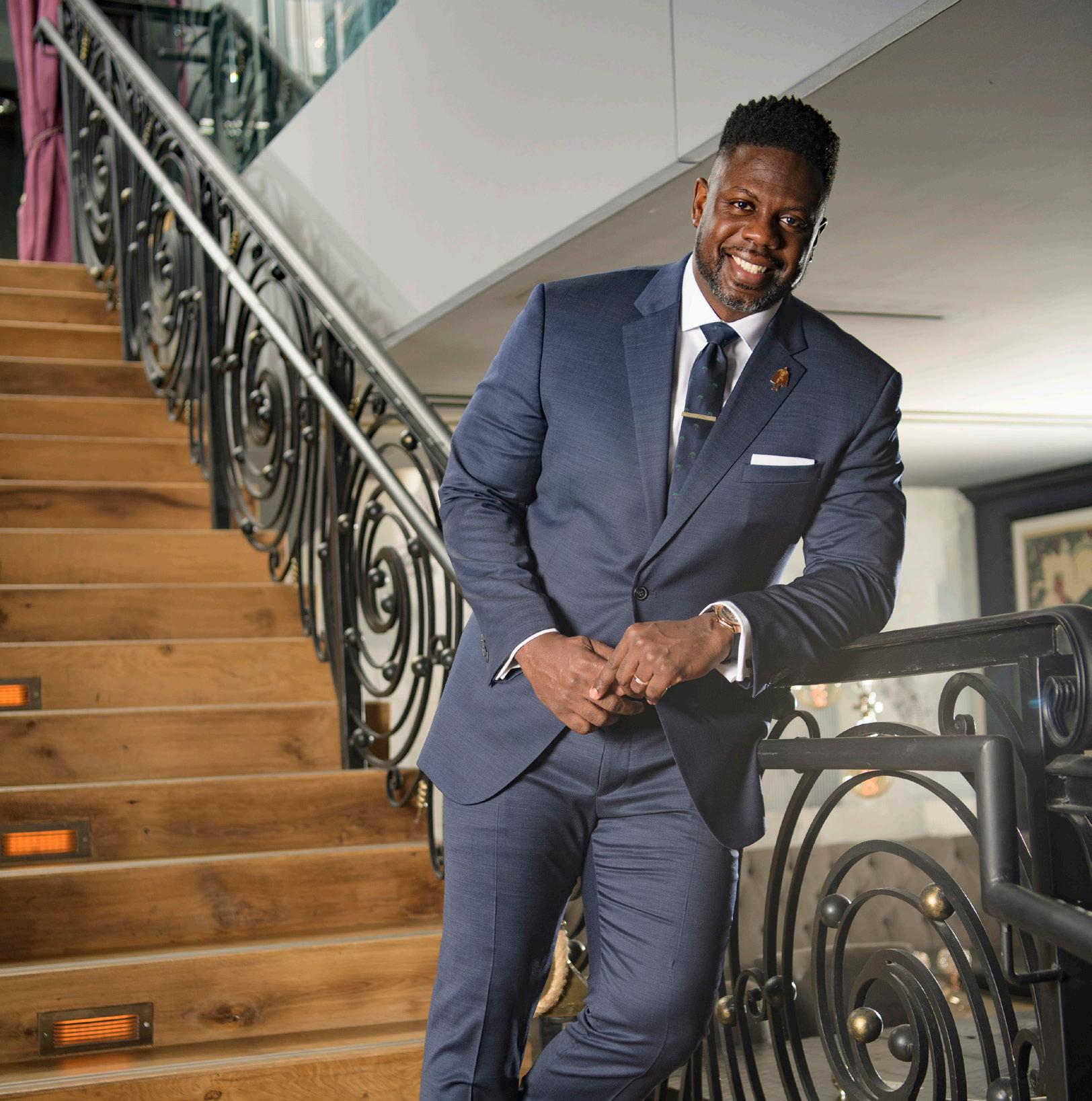
Then, the Fort Mill, South Carolina, native set out to live another dream –owning his own business. Mackey launched Paradise Equity Partners in 2021. The firm brings together sports, entertainment and technology — the fastest-growing businesses worldwide. He brings these sectors together financially and culturally to invest in innovation and growth opportunities.
Paradise Equity Partners is dedicated to education and professional development through its training and recruitment program which targets minorities while producing a high-quality workforce and providing entrance to an industry that historically lacks diversity. Mackey said the
firm will soon start accepting interns and hiring new employees.
More people of color need to be exposed to the private equity investment business, Mackey said. “White companies have been doing this kind of investing for generations. We’ve only been involved in this for the past 10 years. …We need to expand our reach.”
He added, “When you look across the private equity landscape, you’ll be hardpressed to find more than a few African Americans in any of the firms in the U.S. Ours is a diverse and inclusive firm. In addition to our team, we will be intentional with our efforts to prepare minorities for opportunities with other firms and investment banks.”
Another aspect of the business is to connect culture to the financial industry and to provide education and professional development through the company’s training and recruitment program. That initiative targets underrepresented minorities while producing a high-quality workforce and providing an entrance to an industry that historically lacks diversity, Mackey said.
Paradise Equity Partners’ primary investor is Hugh McColl Jr., former Bank of America Chairman and CEO, and founder
of McColl Partners.. McColl has served as Mackey’s mentor in the financial industry, believes in his vision and is one of his biggest fans.
“Robert is both knowledgeable and confident, and that is key in this profession,” McColl said in a news release. “Over the years, Mackey has cultivated a strong, worldwide network of industry leaders in sports.”
The two men were introduced at a breakfast meeting, where Mackey said “a few things” that McColl liked, and that introduction led to other meetings. Their alliance steadily grew, professionally and personally.
“A lot of people like us don’t have a network, and Mr. McColl has helped me tremendously,” Mackey said.
“I’ve always wanted to be a businessman,” he said. “I used to walk around Uptown Charlotte when I was a teenager and see everybody in their nice suits, carrying briefcases, and as much as I liked playing football, I was really drawn to that kind of life. I could see myself being successful, having an office and making money. I really like how things turned out. Looks like mom was right.” P
Through our Community Homeownership Commitment,1 we’ve helped over 34,000 people and families get an affordable loan to buy a home. Here’s how it can help you secure your family’s future:
Payment
Closing costs help up to $7,500 as a lender credit.3
Down payment help up to $10,000 or 3% of the purchase price, whichever is less. Product availability and income restrictions apply.2
Closing costs help up to $7,500 as a lender credit.3
Through our Community Homeownership Commitment,1 we’ve helped over 34,000 people and families get an affordable loan to buy a home. Here’s how it can help you secure your family’s future: Learn more at bankofamerica.com/homeowner

Down payment help up to $10,000 or 3% of the purchase price, whichever is less. Product availability and income restrictions apply.2 Down payment as low as 3% down. Income limits apply.4
Down payment as low as 3% down. Income limits apply.4
Learn more at bankofamerica.com/homeowner
What would you like the power to do? ®
You are invited to apply. Your receipt of this material does not mean you have been prequalified or pre-approved for any product or service we offer. This is not a commitment to lend; you must submit additional information for review and approval.
program may be considered taxable income, a 1099-MISC will be issued, consult with your tax advisor. May be combined with other offers. The Bank of America Down Payment Grant program may only be applied once to an eligible mortgage/property, regardless of the number of applicants. Homebuyer education is required.
1. Down Payment program and America’s Home Grant program: Qualified borrowers must meet eligibility requirements such as being owner-occupants and purchasing a home within a certain geographical area. Maximum income and loan amount limits apply. Minimum combined loan-to-value must be greater than or equal to 80%. The home loan must fund with Bank of America. Bank of America may change or discontinue the Bank of America Down Payment Grant program or America’s Home Grant program or any portion of either without notice. Not available with all loan products, please ask for details.
3. Additional information about the America’s Home Grant program: The America’s Home Grant program is a lender credit. Program funds can only be used for nonrecurring closing costs including title insurance, recording fees, and in certain situations, discount points may be used to lower the interest rate. The grant cannot be applied toward down payment, prepaid items or recurring costs, such as property taxes and insurance. Borrowers cannot receive program funds as cash back.
4. Maximum income and loan amount limits apply. Fixed-rate mortgages (no cash out refinances), primary residences only. Certain property types are ineligible. Maximum loan-to-value (“LTV”) is 97%, and maximum combined LTV is 105%. For LTV >95%, any secondary financing must be from an approved Community Second Program. Homebuyer education may be required. Other restrictions apply. Credit and collateral are subject to approval. Terms and conditions apply. This is not a commitment to lend. Programs, rates, terms and conditions are subject to change without notice. Bank of America, N.A., Member FDIC. Equal Housing Lender. © 2022 Bank of America Corporation. America’s Home Grant, Bank of America Community Homeownership Commitment, Bank of America and the Bank of America logo are registered trademarks of Bank of America Corporation. MAP4697912 | AD-06-22-0482.B | 06/2022
2. Additional information about the Down Payment program: Down Payment program is available with one mortgage product. Program funds can be applied toward down payment only. Borrowers cannot receive program funds as cash back in excess of earnest money deposits. Down Payment Grant program may be considered taxable income, a 1099-MISC will be issued, consult with your tax advisor. May be combined with other offers. The Bank of America Down Payment Grant program may only be applied once to an eligible mortgage/property, regardless of the number of applicants. Homebuyer education is required.
3. Additional information about the America’s Home Grant program: The America’s Home Grant program is a lender credit. Program funds can only be used for nonrecurring closing costs including title insurance, recording fees, and in certain situations, discount points may be used to lower the interest rate. The grant cannot be applied toward down payment, prepaid items or recurring costs, such as property taxes and insurance. Borrowers cannot receive program funds as cash back.
4. Maximum income and loan amount limits apply. Fixed-rate mortgages (no cash out refinances), primary residences only. Certain property types are ineligible. Maximum loan-to-value (“LTV”) is 97%, and maximum combined LTV is 105%. For LTV >95%, any secondary financing must be from an approved Community Second Program. Homebuyer education may be required. Other restrictions apply. Credit and collateral are subject to approval. Terms and conditions apply. This is not a commitment to lend. Programs, rates, terms and conditions are subject to change without notice. Bank of America, N.A., Member FDIC. Equal Housing Lender. © 2022 Bank of America Corporation. America’s Home Grant, Bank of America Community Homeownership Commitment, Bank of America and the Bank of America logo are registered trademarks of Bank of America Corporation. MAP4697912 | AD-06-22-0482.B | 06/2022
SAMUEL L. SMITH JR. is a community cultivator, advocate, servant-leader and the new executive director of the GreenLight Fund Charlotte, a nonprofit organization at the intersection of community need and social innovation.
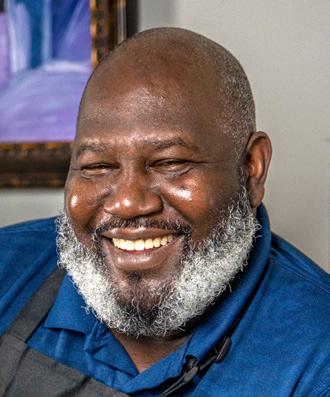
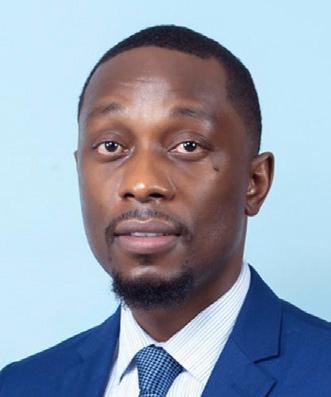
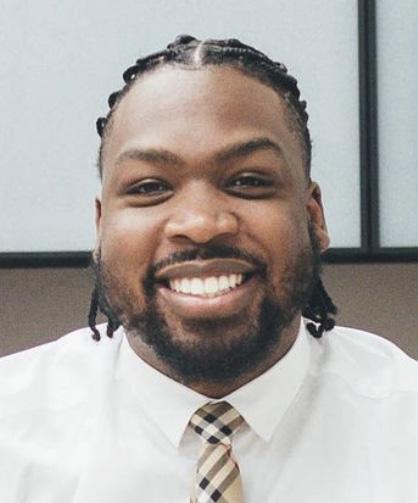
Smith has over a decade of experience working with numerous corporate and nonprofit institutions. He currently partners with GreenLight’s Selection Advisory Council — an inclusive, cross-sector group of community leaders and residents with life experiences. The council vets and selects proven models to help create opportunities for children, youth and families experiencing poverty and bring the next set of social innovations to Charlotte. Previously, he served as the director of external engagement with the United Way of Central Carolinas.
Smith is also the founder of Tailored Career Coaching, a professional development and resume writing boutique, and co-founder of Black Market Exchange, a technology platform that connects businesses and freelancers to support the Buy Black Movement.
“It provides me great pleasure to convene stakeholders from the philanthropic, nonprofit, private sector, government and community leaders to invest in solutions and drive measurable results that improve opportunity and mobility for children and families in the CharlotteMecklenburg community,” said Smith.
KENNETH GORHAM is the principal of Movement Middle School, a tuition-free public charter school, where he is helping prepare a new generation of leaders.
KEVIN HARRIS is an American portrait, figurative and abstract painter who specializes in oil, acrylic and pastel paintings. Born in the 1960s, Harris experienced a variety of cultures throughout Washington, D.C., and Harlem, where he was raised, creating a blend of styles and genres that led to who is as an artist today.
While Harris is primarily self-taught, he studied with Joan Bevelaqua, professor of studio art at the University of Maryland, as well as with artist Robin Wellner. Harris became an ArtPopCLT artist after being named to ArtPop Street Gallery’s Class of 2022, a program built to showcase local artists by featuring their art in public spaces and equipping them to achieve sustained success.
Harris’ artwork is now displayed on billboards in Cabarrus County Courthouse and multiple galleries and outdoor spaces throughout Charlotte, Atlanta, Baltimore and Washington, D.C. His work has also been featured in Art & Beyond Magazine.
“Since I was very young, I knew that I loved to draw and paint – people primarily – but anything that I could envision. I never imagined that my love would eventually become my profession, and I am so grateful that it happened this way,” said Harris.
Gorham, an HBCU graduate of North Carolina Agricultural and Technical State University, received his bachelor’s degree in political science and government then started his career as a fourth-grade reading teacher and worked his way up to becoming principal at Movement Middle. Despite his age, his leadership competencies and impressive test scores throughout the years helped break the mold of what
a traditional educator looks like and, ultimately, landed his appointment as the youngest principal of Movement Middle at the age of 24.
“My belief in our children is endless. As a Black male leader and educator, my job is to truly empower our children to show them life beyond what the world may say, believe or perceive of them. You can change that narrative every single day,” said Gorham.
Black men in Charlotte who are making positive changes and forging new paths in the community.
As the executive director and co-founder of the Carolina Youth Coalition (CYC), AARON RANDOLPH has orchestrated the success of an organization that grooms high-achieving, under-resourced students in Charlotte who want to attend college.
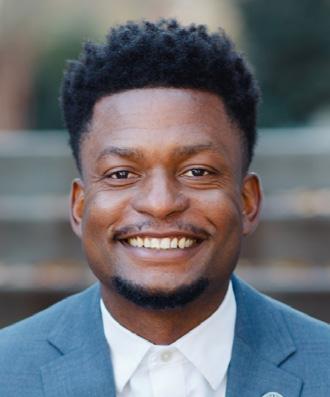
Randolph, who earned his doctorate degree in education at the Harvard Graduate School of Education and a bachelor’s degree from Cornell University, has worked in youth development for the Boys & Girls Club and the YMCA in Baton Rouge, Louisiana. He also taught social studies to middle and high school students.
Founded in 2018, with a donation from the Albemarle Foundation, CYC, a nonprofit organization, helps prepare motivated students (called College Fellows) to be wellprepared to take the college entrance standardized tests; research and apply for many grants and scholarships; and apply to several colleges to increase the chances of acceptance to the best school match with the best financial aid offers. CYC also takes students on college tours to schools, mostly in the Northeast and Southeast.
In August 2022, CYC sent its fourth cohort of fellows off to colleges across the country. Fellows attend 36 universities in 17 states from community colleges to Ivy League universities, giving them “the opportunity to learn among like-minded peers,” Randolph said. Many in the first cohort of fellows will graduate from college this year. According to the CYC website, Randolph is “driven by a fervent belief in the power of education to create lasting generational change.”
Americans with Disabilities Act Coordinator, Charlotte
TERRY BRADLEY, who earned his bachelor’s degree from Livingstone College and his master’s degree in business and public administration from the University of
TRE’ MCGRIFF’S fascination with cinema and filmmaking began as a college student in Upstate New York where he discovered classic “black exploitation” films of the 1970s, directed by legends such as Melvin Van Peebles and Gordon Parks, who were among the few black filmmakers then.
He said it wasn’t until he saw the work of director Spike Lee — classics like “School Daze ‘’ and “She’s Gotta Have It” — that he knew learning about and promoting films was his passion. “Spike changed the game,” he said. McGriff brought his love of film with him to Charlotte when he moved here 10 years ago, and the independent filmmaking community immediately embraced him.
After discovering there were no platforms for filmmakers of color, he launched the CineOdyssey Film Festival in 2017. Held annually in the fall, the festival is an “all-inclusive umbrella film festival” that had never been done before in the city, he said. CineOdyssey showcases films in non-traditional venues, including the Mint Museum and the Little Rock Cultural Center.
At the festival, movie lovers can view diverse, contemporary and cutting-edge films from the region and world films from Africa, the Caribbean, Asia and other places. McGriff plans to expand the scope of the festival to include other venues and themes. He said he also plans to offer innovative classes, panel discussions and workshops to expose moviegoers to all genres of filmmaking.
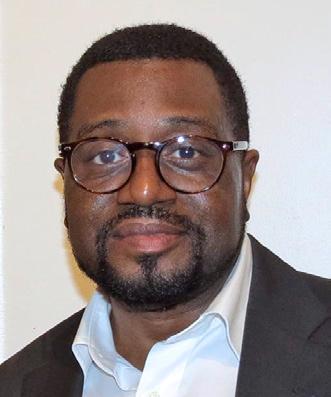
Phoenix, is the deputy director of the Charlotte-Mecklenburg Community Relations team and the city of Charlotte Americans with Disabilities Act coordinator.
Bradley is also president of the North Carolina Chapter of the National Association of Human Rights Workers and the developer of Charlotte’s Americans with Disabilities Act Transition Plan, a living and working document used as a guideline to make the city more accessible for all residents and visitors.
The transition plan outlines how physical barriers identified through self-evaluation will be removed.
Bradley said the transition has been very successful and noted that Charlotte residents need access to public venues and buildings for many reasons, not limited to physical handicaps, including: long-term and chronic illness, mental health issues, aging and other reasons.
“Making sure all our residents have access to buildings and venues in Charlotte is an ongoing process,” he said. “Almost everyone will need this type of assistance at some point in their lives.”
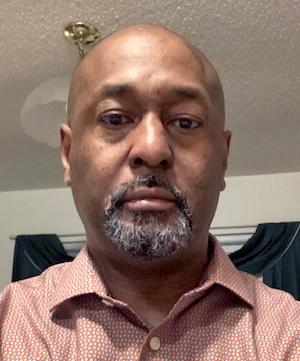
GREGORY “DEE” RANKIN, a native Charlottean, was elected in November to serve as a school board member of CharlotteMecklenburg Schools. Rankin, who earned his bachelor’s degree in biology from the University of North Carolina at Charlotte and his master’s degree in public administration from the University of North Carolina at Pembrooke, is a program supervisor at Thompson Child & Family Focus serving youth in a psychiatric residential treatment facility. He is also the founder of the nonprofit organization Future L.E.A.D.E.R.S., where he educates and mentors young people.
Before starting his nonprofit, Rankin taught at an alternative school in Charlotte, so he knows the importance of offering students’ quality education resources. “I have a passion for serving youth and have been doing so for a very long time,” he said. “I have been an education advocate for black children for a while so I thought, ‘What better way to advocate for children than by serving on the board of education where I can create policy that is meaningful and purpose driven.’”
CMS faces several challenges that Rankin said he’s eager to help solve, including finding a school superintendent who is willing to make a long-term commitment to CMS students and families; identifying how to improve student outcomes, especially for economically challenged and Black and Brown students; and developing an effective strategy to recruit and retain quality teachers.
Rankin attended his first CMS school board meeting as a member in December after he was sworn in.
President
FULTON MEACHEM grew up in Greensboro, North Carolina, and received a bachelor’s degree in business administration from North Carolina Central University. Meachem is the president and CEO of Inlivian, a non-profit real estate

JONATHAN GARDNER founded GardHouse in 2019 after he learned students of color are twice as likely to be unemployed after graduating from college than their white counterparts. GardHouse prepares BIPOC college students to get paid internships and workforce development opportunities.
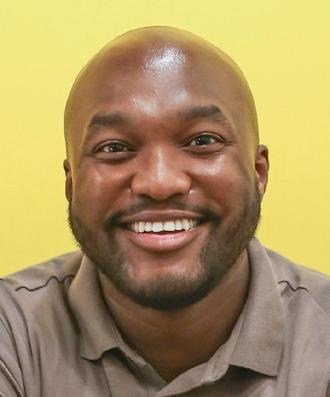
Gardner, who grew up in Philadelphia, earned a bachelor’s degree in communications from La Salle University. He entered the Charlotte School of Law in 2015, but because of financial challenges, he left the school; and then he had to find a job. But after facing many rejections from potential employers, Gardner was frustrated with the process of looking for employment. He shared his exasperation with his peers and found they were experiencing similar problems.
GardHouse is Gardner’s vehicle to help diverse college students more successfully navigate their professional paths before they graduate from college. Each fall, Gardhouse selects a group of students through an application process. GardHouse then helps students shape their resumes, prepare for interviews and offers them career coaching. GardHouse places those students in a 16-week internship with employer partners in Charlotte which include small businesses, nonprofits and government agencies from various industries.
The students that GardHouse serves look to the organization “to provide them with true support that’ll set them up for great success after graduation and beyond,” Gardner said. “It is not taken lightly. The team operates as if we’re doing open heart surgery for each intern.”
holding company that works to provide decent, safe housing that is affordable to low and moderate-income families while supporting their efforts to achieve self-sufficiency.
Meachem, who has over 20 years of experience in the affordable housing industry, said, “Having a place to call home is where we all find a sense of peace.” By creating housing opportunities, Inlivan helps families break the cycle of poverty, gives seniors a chance to age with dignity, and offers veterans a sense of peace, he said.
“This is not my job; it is my passion, commitment and honor.”
Inlivian is creating a space where everyone can access housing and find comfort in a place of their own, Meachem said. “We do not believe a person’s income is indicative of their character.”
Fulton serves on several boards and committees, including the Urban Land Institute Steering Committee, Charlotte Works and the Charlotte Mecklenburg Coalition on Housing. He’s also a member of the Public Housing Authorities Directors Association. P
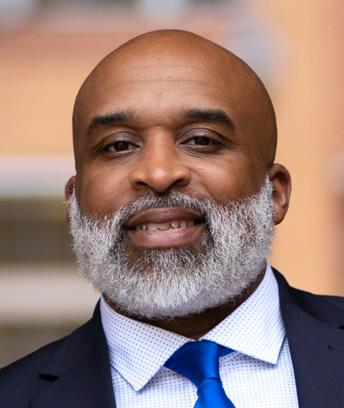
From giving today to support the causes you value – to ensuring a better tomorrow for future generations – your local community foundation can help you and your family make a lasting charitable impact.
Join others with a common vision by partnering with Foundation For Black Philanthropy, an affiliate of Foundation For The Carolinas. You can focus on the joy of giving while uplifting the power of Black philanthropy. Visit www.fftc.org/FFBP to learn more.


people, indigenous people, and people of color (BIPOC). Local couple Roger and Claudette Parham aim to change that.
The discrepancies in donation distribution persists despite widespread commitments by foundations and other benefactors to allocate funding more equitably, according to a June 2022 national survey of over 1,100 charity leaders as reported by philanthropy.com. For example, 75 percent of Black-led organizations and 82 percent of all BIPOCled organizations received foundation funding in 2021, compared with 86 percent of white-led organizations, according to a survey released by the Nonprofit Finance Fund. Likewise, 58 percent of BIPOC-led organizations received corporate donations in 2021, compared with 71 percent of white-led groups, the survey found.
In 2019, Roger and Claudette Parhams co-founded the Parham Family Charitable Fund (PFCF) to help fund existing small nonprofits that are addressing some of the glaring needs people are facing in their local communities. Its mission is to focus on building and restoring affordable family homes. According to the Parhams, the fund works to enhance the needs of the community by developing housing that is environmentally friendly, affordable, luxurious and energy efficient homes, for individuals and families in need.
By Angela LindsayWhile foundations made advancements in equity during the pandemic, those led by people of color still trail their white counterparts when it comes to support received, according to philanthropy.com. Great disparities exist between the level of giving and other types of support given to whiteled nonprofits versus those led by Black
“The fund is an attempt to be one of the tools that can assist smaller local non-profit organizations with their funding needs,” said Roger.
The PFCF is a donor-advised fund within the BNY Mellon Charitable Gift Fund. The Parhams pledged and contributed $1,000,000 to the creation of the PFCF, and those funds are invested and administered by BNY Mellon, said the Parhams. Several of the fund’s recipients serve communities along the Beatties Ford Road corridor.
“As the city of Charlotte continues to evolve, it’s extremely important that those residing in underserved areas not be passed over.”
— Roger ParhamClaudette and Roger Parham in Chiang Mai, Thailand, at Patara Elephant Farm in November. Photo courtesy of Claudette and Roger Parham
“As the city of Charlotte continues to evolve, it’s extremely important that those residing in underserved areas not be passed over,” Roger said.

While the Parhams say they typically do not apply too many restrictions to the types of projects they fund, history shows they tend to support education, housing and health care related efforts. A few of the nonprofit groups the PFCF has donated to include: Beatties Ford Road Vocational Trade Center, Greater Steps Scholars, Block Love Charlotte, Healing Vine Harbor, Inc., My Sister’s House and She Built This City.
“Selecting nonprofits to support is always a challenge,” said Claudette. “The fact that there are so many incredible big hearted, talented people in our community stepping up to provide much needed

services to our less fortunate neighbors makes narrowing the list of organization we can support in a meaningful way truly difficult.”
“In 2022, we partnered with WCNC/ TEGNA and worked with them to identify and highlight small nonprofits in their viewing area that are fulfilling important services to the community. We both make a financial contribution to those non-profits, and WCNC runs a story on the organizations and solicits contributions from the community,” Roger added.
WCNC Charlotte, the TEGNA Foundation, Steel Skin Realty and the Parham Family Charitable Fund together have donated money to help more than 20 Charlotte area nonprofits this year, according to WCNC.com. The Parhams
said they would love to develop deeper relationships with the nonprofits they help fund to better understand their needs and perhaps share tools to support their growth and sustainability, other than just financially.
“Money is crucial,” Claudette said, “but perhaps with a better understanding of the inner workings of the organizations, we could better utilize our network to bolster areas like marketing, outcomes research and grant writing.” P
WCNC Charlotte, the TEGNA Foundation, Steel Skin Realty and the Parham Family Charitable Fund together have donated money to help more than 20 Charlotte area nonprofits this year.At Atrium Health, it’s important that our teammates represent the communities we serve. That’s why we work every day to create a space where all belong and live out our mission to improve health, elevate hope and advance healing – FOR ALL.
Join our team where you can live life fully.

 By Nancy C. Sampson
By Nancy C. Sampson
The Urban League of Central Carolinas celebrated the opening of a new Digital Innovation Center in East Town Market at 3118 Suite A, Milton Road, Charlotte, in August. The nonprofit organization partnered with Mecklenburg County to expand beyond their original location at 740 W. 5th Street in Charlotte.
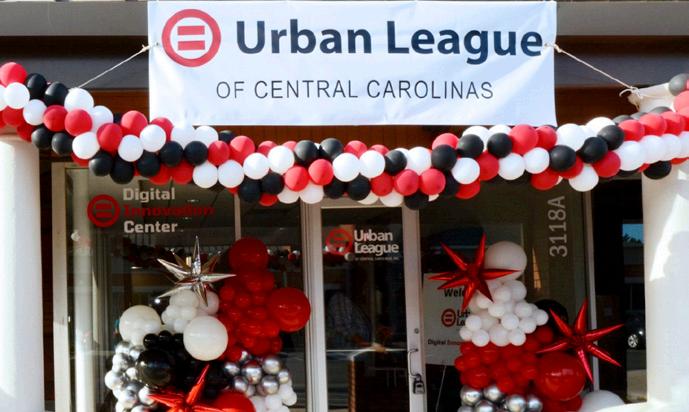
The new state-of-the-art satellite location expands the organization’s capacity for career development and skills training and will make their programs more convenient for those who live and work east of Uptown.
The mission of the ULCC is to help African Americans and all underserved citizens with the tools needed to achieve social and economic equality, the organization’s website states.
The ULCC is helping to close the digital divide and adapting to pandemic-era conditions by offering a combination of virtual and in-person training programs.
Classes and community events at the Digital Innovation Center in East Charlotte
contribute to the ULCC’s mission of building employment and income equality for African Americans and underserved communities of any socio-economic status. The new facility offers educational programs like those offered at ULCC’s Uptown location as well as job placement.
ULCC’s CareerBridge workforce program webpage includes information on nine areas of coursework offered through ULCC at no charge, from banking and technology training to certifications in HVAC and other trades.

The ULCC and Mecklenburg County partnership also started the Working Women, Thriving Families and Better Communities
Initiative (WTB) which trains and places women in livable wage careers. The program offers participants a full range of support and resources based on each client’s needs for continuing their career development. Mentoring, social support and financial assistance are some of the available options.
WTB career development tracks include national web service certifications from Microsoft or Amazon Web Services for IT roles and other certifications in universal banking and medical-related roles.
Mecklenburg County has been a consistent partner with the WTB program, which offers women in low-income jobs access to post-secondary learning and personalized support while they complete their certification. ULCC works with various companies to secure job placement for anyone who is certified through its programs.
In December, ULCC held a graduation ceremony for 60 CareerBridge graduates who received certifications in 6 disciplines.
"Not only are graduates equipped in their field, but a holistic approach is tailored to the needs of every single person that walks through the door. By continuing to empower our communities, we are daily changing lives,” said Makeda Holley-Johnson, ULCC emerging programs and education director.
The ULCC job board includes job listings from the organization’s partners, including available positions at Harris Teeter, The Home Depot, Lowes, Metrolina Greenhouses and more.
The ULCC, an affiliate of the National Urban League, has studied the problems that minorities face related to careers and employment since its establishment in 1978. The organization’s mission is to build sustainable communities through innovation, advocacy and collaboration with corporations and local civic organizations.
Visit urbanleaguecc.org to learn more about their career education programs, volunteer opportunities and other ways to get involved P
JazzArts Charlotte CEO Lonnie Davis takes on the role of president of the board of directors for the leading jazz organization in the world, the Jazz Education Network.
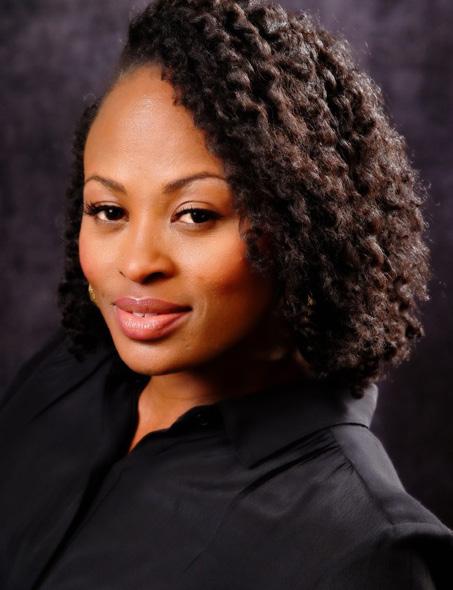
The Jazz Education Network (JEN) is a 501c3 nonprofit dedicated to building the jazz arts community by advancing education, promoting performance, and developing new audiences.
Davis has been a member of JEN since 2010 and has served as Board President-Elect for two years in preparation for the role and will be serving a two-year term as President.
“I am honored to be in a position to facilitate more extensive jazz offerings to the Charlotte community and to provide a brighter spotlight for Charlotte’s talent and contributions with a national presence,” said Davis.
With a new gift of $500,000 from The Gambrell Foundation, the Charlotte Museum of History has raised $1.2 million to save the historic Siloam School, exceeding its $1 million goal. A Black community that grew around the Siloam Church in northeast Charlotte built the school in the early 1920s to give their children a quality education despite segregation.
“Thanks to this incredibly generous gift from The Gambrell Foundation, the Save Siloam School Project can now move forward with restoring this important piece of Charlotte history,” said Terri L. White, president & CEO of the Charlotte Museum of History, which leads the community-based effort to save the school.
“This project is a testament to what the Charlotte community can do when we stand together to save our history. A special thanks goes out to Silver Star Community Inc., a nonprofit that works tirelessly to save Black historic spaces,” said White. “They were the original force behind the Save Siloam School Project, and without their efforts, the Siloam School may have faded into obscurity.”
As part of the project, the museum will move the historic school building to its eight-acre campus in East Charlotte.
The Atlantic Coast Conference (ACC) Board of Directors announced it will keep its home in North Carolina and has selected Charlotte as the future site of its headquarters.
The ACC’s 50 employees and headquarters will be located in the Legacy Union complex in Uptown Charlotte, complete with state-of-the-art game day operations and production studios. The organization will invest approximately $5 million into the new space.
“I’m very excited and happy to welcome the Atlantic Coast Conference as Charlotte’s newest resident,” Charlotte Mayor Vi Lyles said. “Charlotte is one of the best sports towns in the country and a growing destination for sports events, so having the ACC call Charlotte home bolsters our reputation nationally.”
The CLT Alliance played an integral role in retaining this asset in the state, hosting site visits with members of the ACC senior leadership team and facilitating meetings with city and regional partners.
A $10 million gift from Bank of America has allowed Atrium Health to bring its Meaningful Medicine program to Central Piedmont Community College with the opening of a community-based virtual clinic. The clinic will provide health care access to our most vulnerable communities and offer a pathway to health care careers for students, providing the opportunity to end the cycle of intergenerational poverty.
“Atrium Health’s belief that care should be ‘for all’ is taking place at CPCC with the opening of this new, community-based virtual clinic,” said Dr. Scott Rissmiller, enterprise executive vice president and chief physician executive for Atrium Health.
With improved access to health care, the clinic will help mitigate disease progression, reduce missed class days due to illness and optimize access to primary care. Utilizing innovative technologies and digital diagnostics, the clinic will offer a variety of services, including evaluation and treatment of common medical concerns: point-ofcare testing and sample collection, such as strep throat andcovid testing.
“It’s our challenge to ensure that every patient in our community has access to convenient, supportive, quality health care,” said Kieth Cockrell, president of Bank of America Charlotte.
Helping the local economy thrive is just one of the many positive attributes you bring to our area. Extending your abilities and resources to the community through service and other initiatives makes you a true leader.
Congratulations PRIDE Magazine on 30 years of inspiration and impact in Charlotte and beyond. Visit us at bankofamerica.com/about
